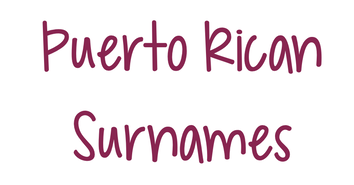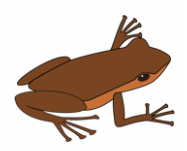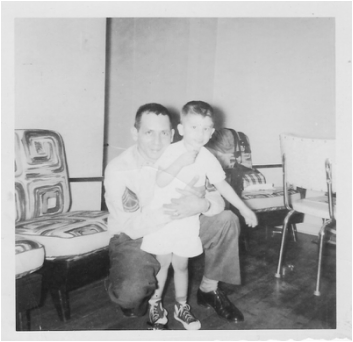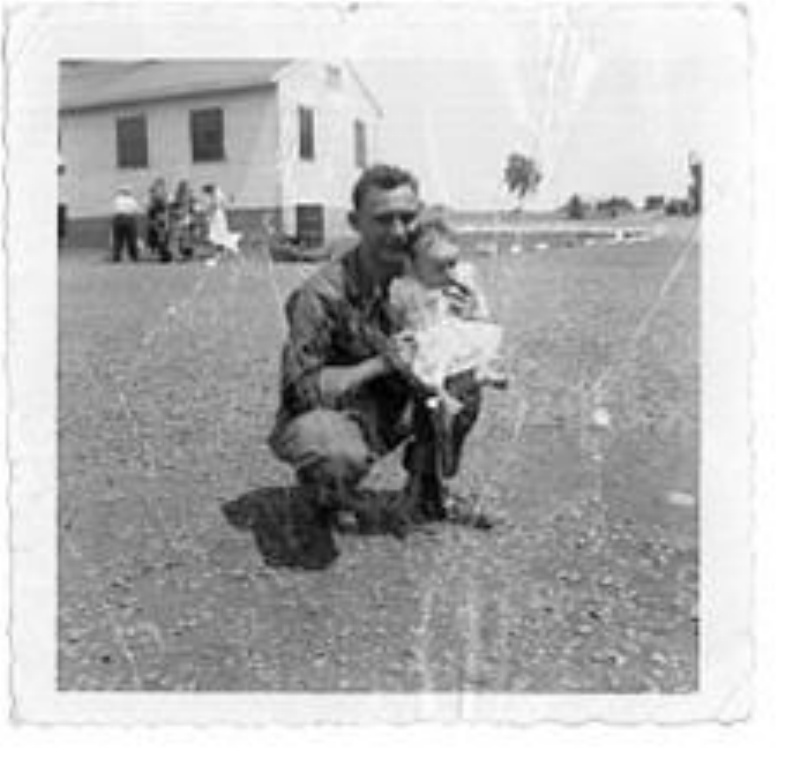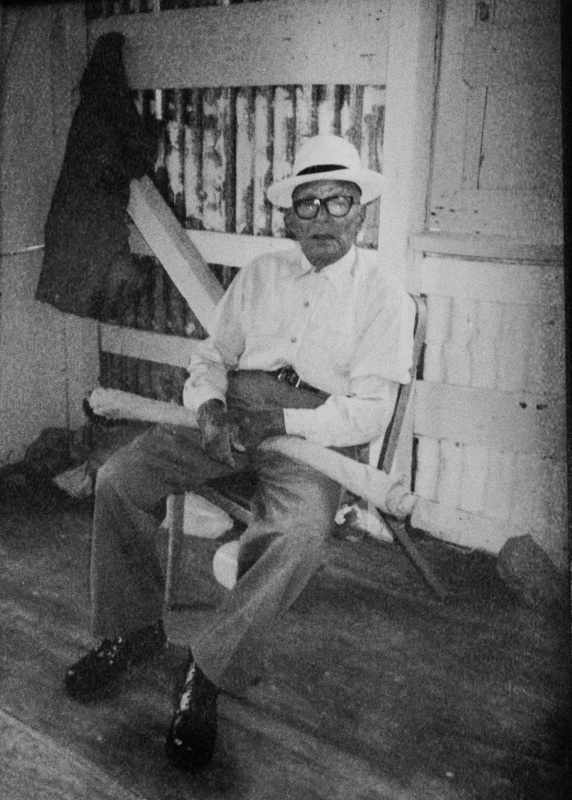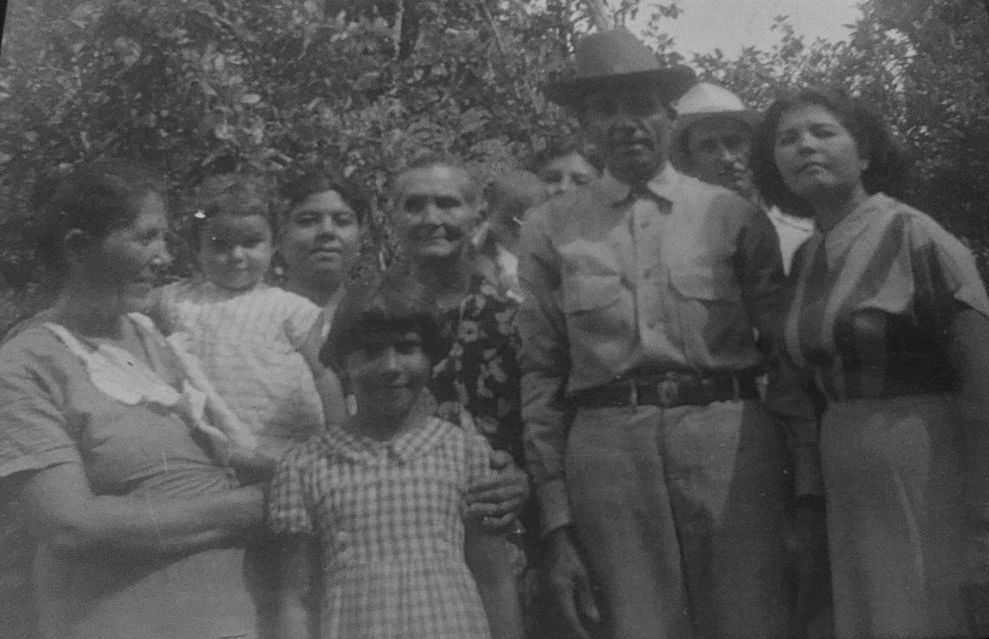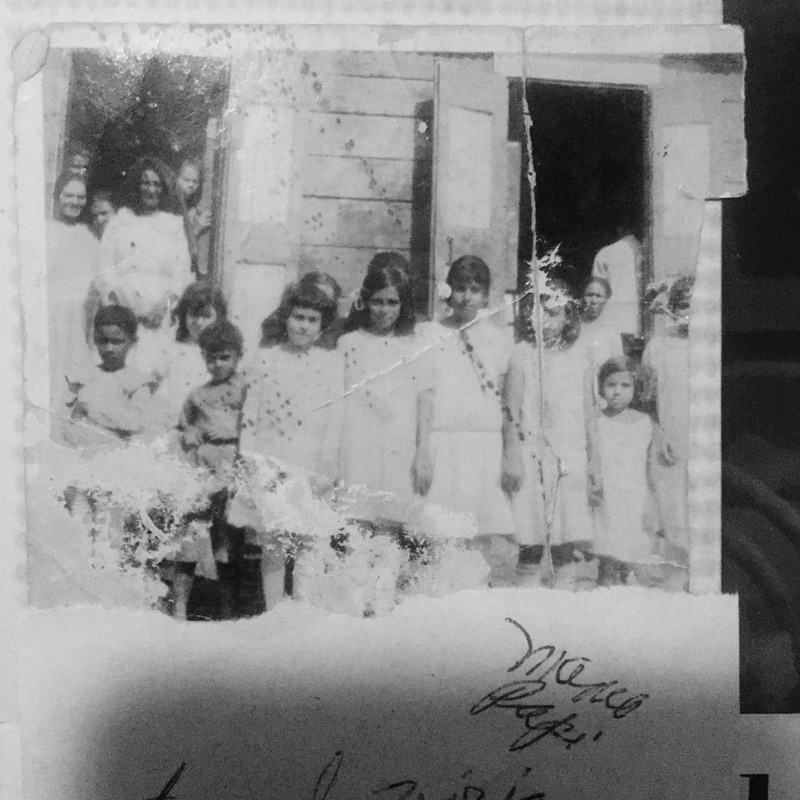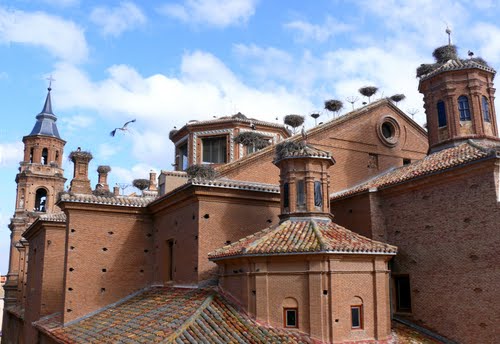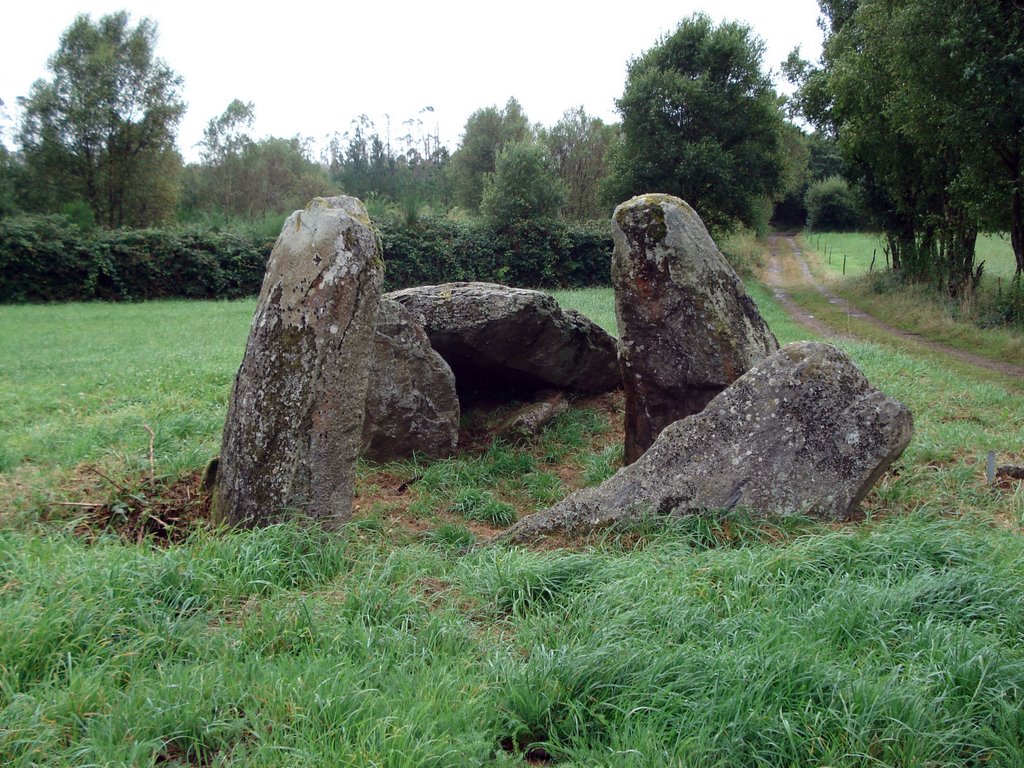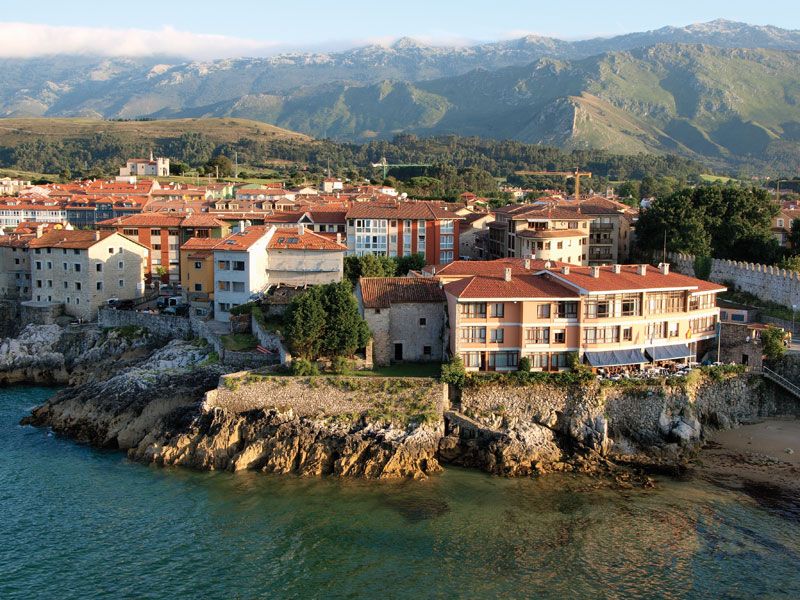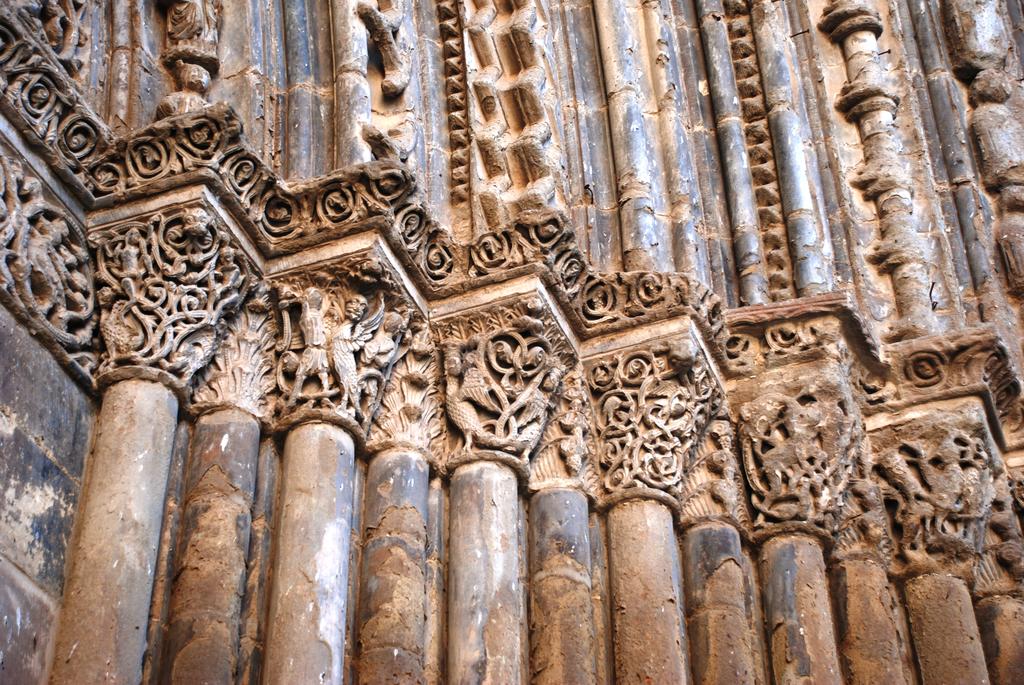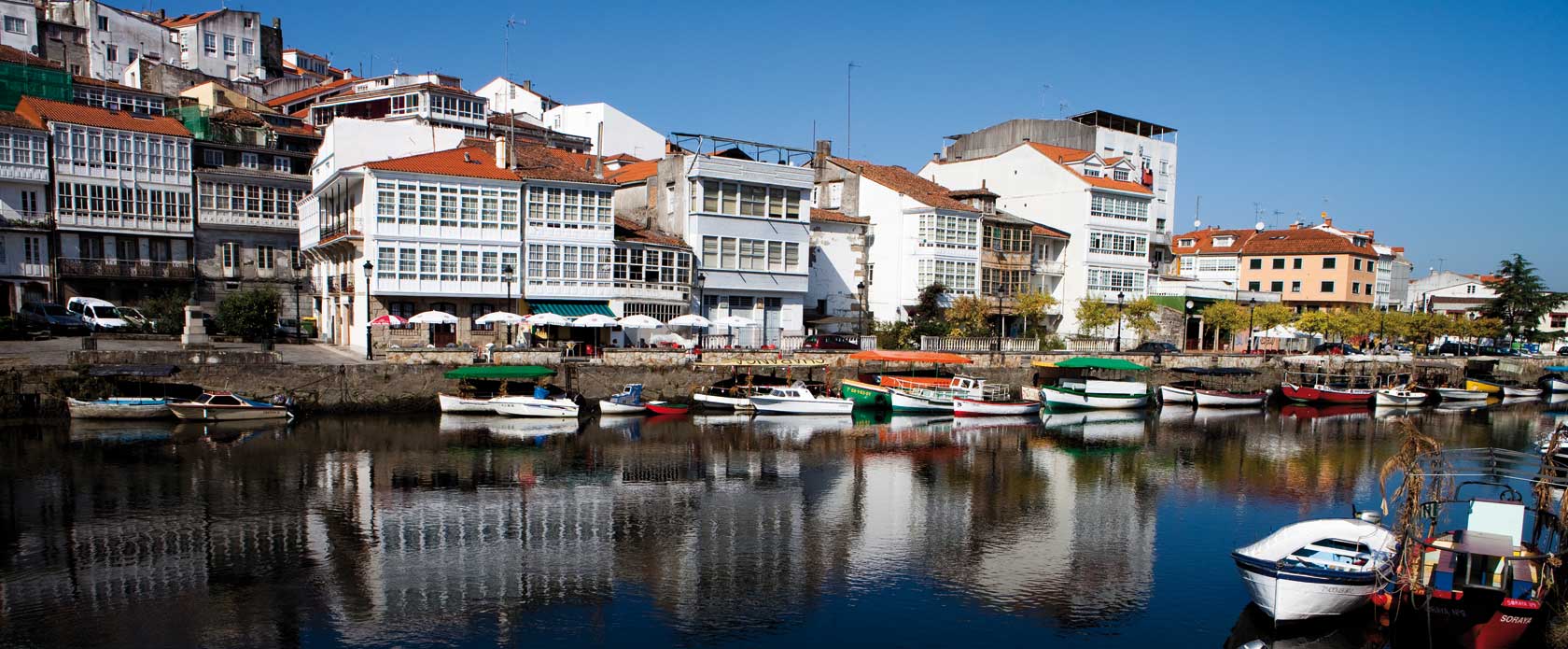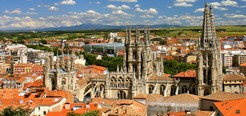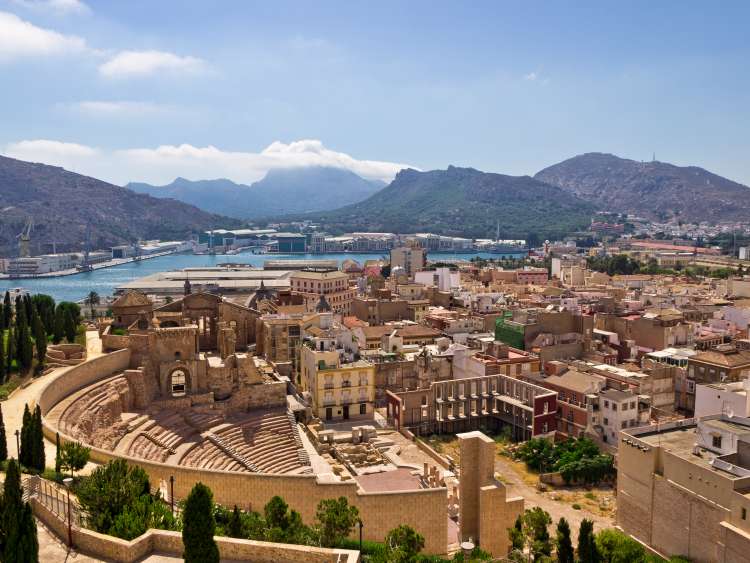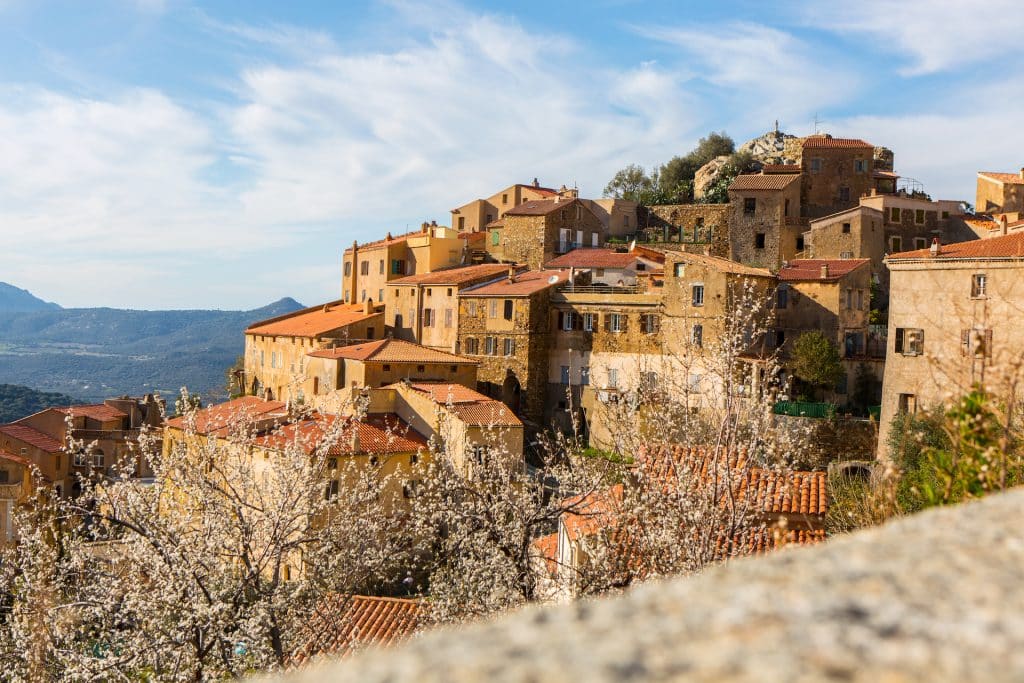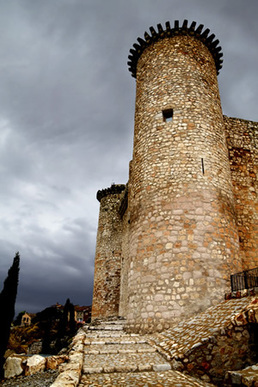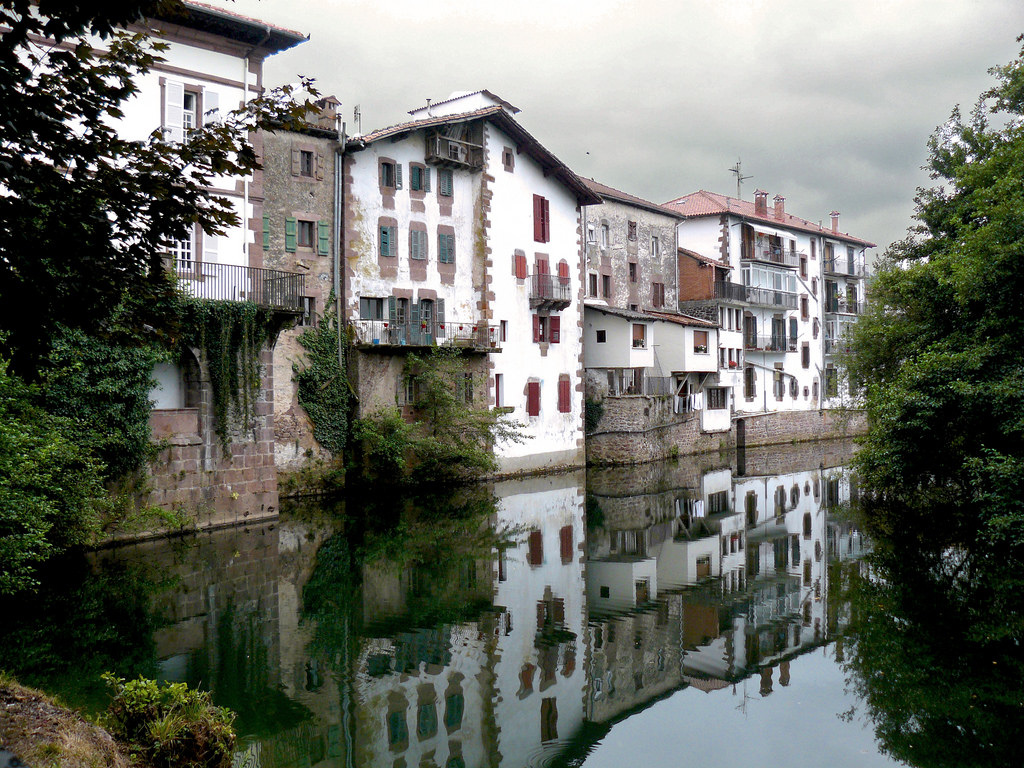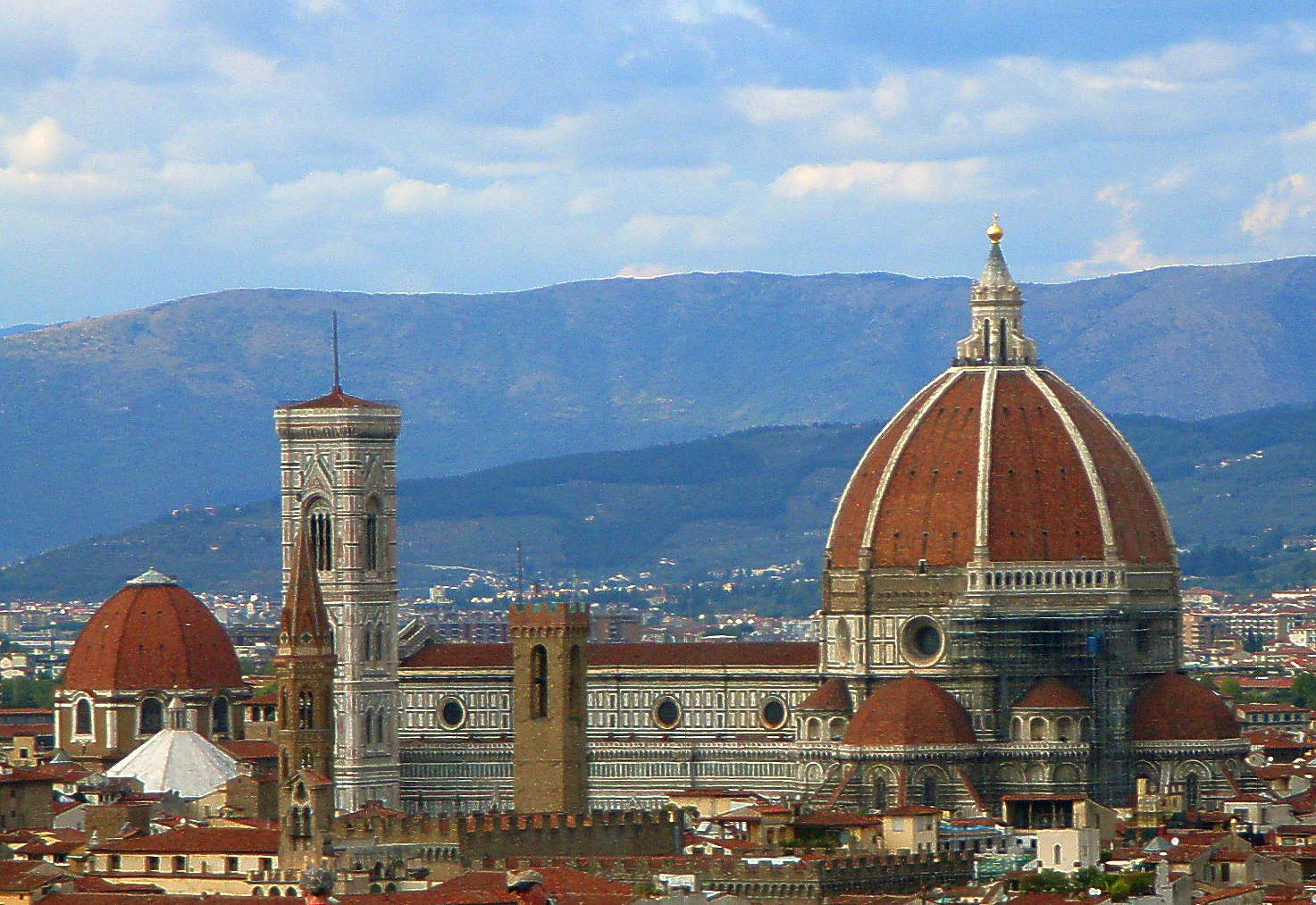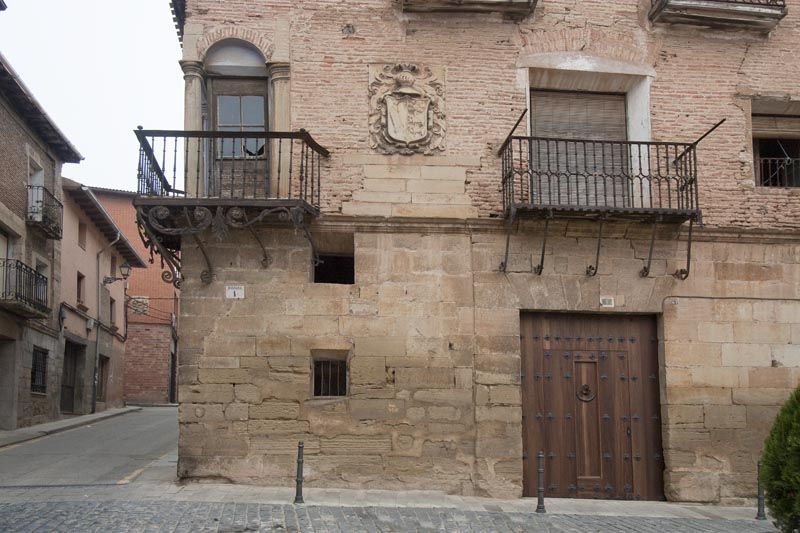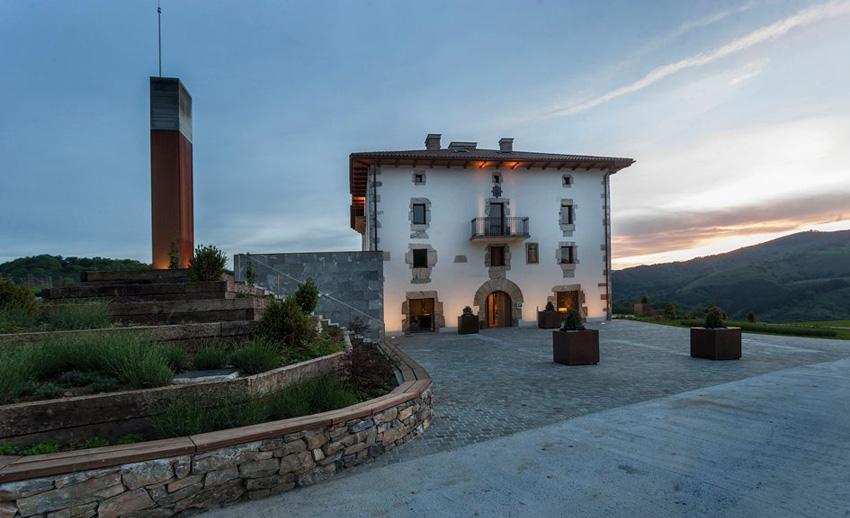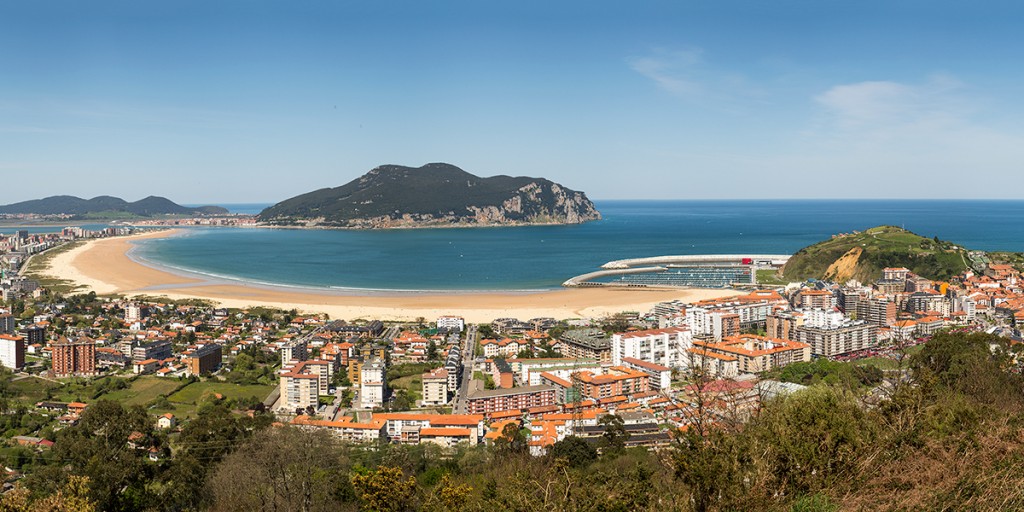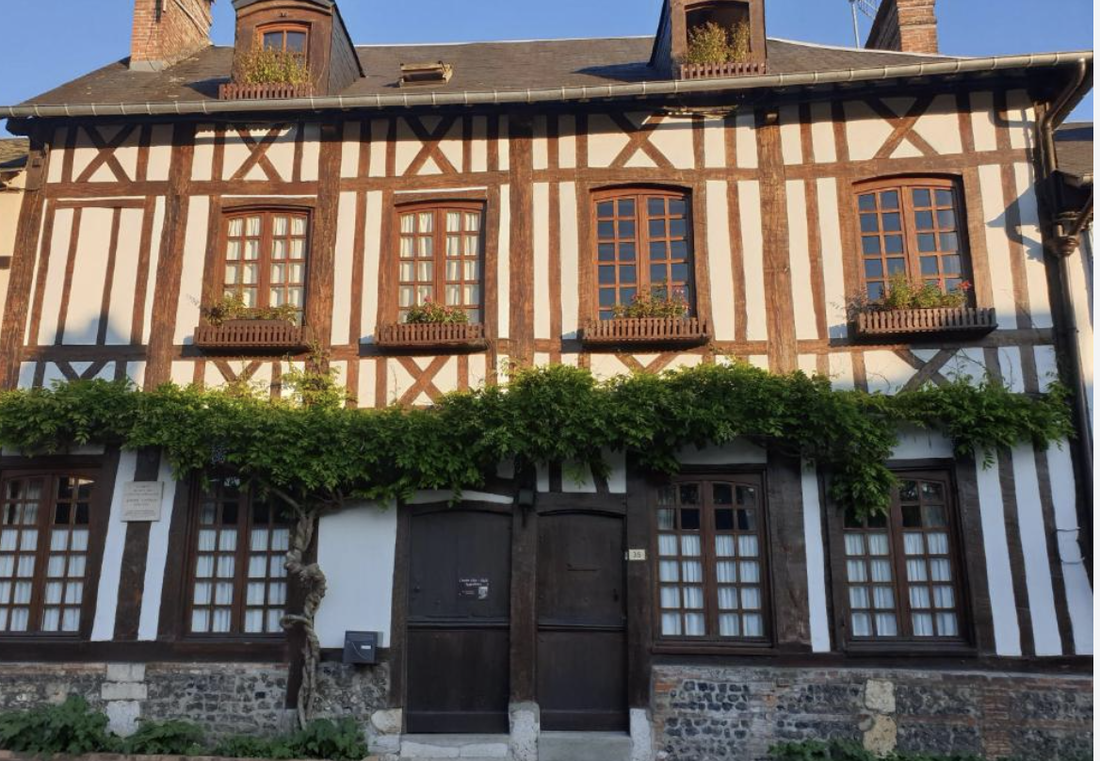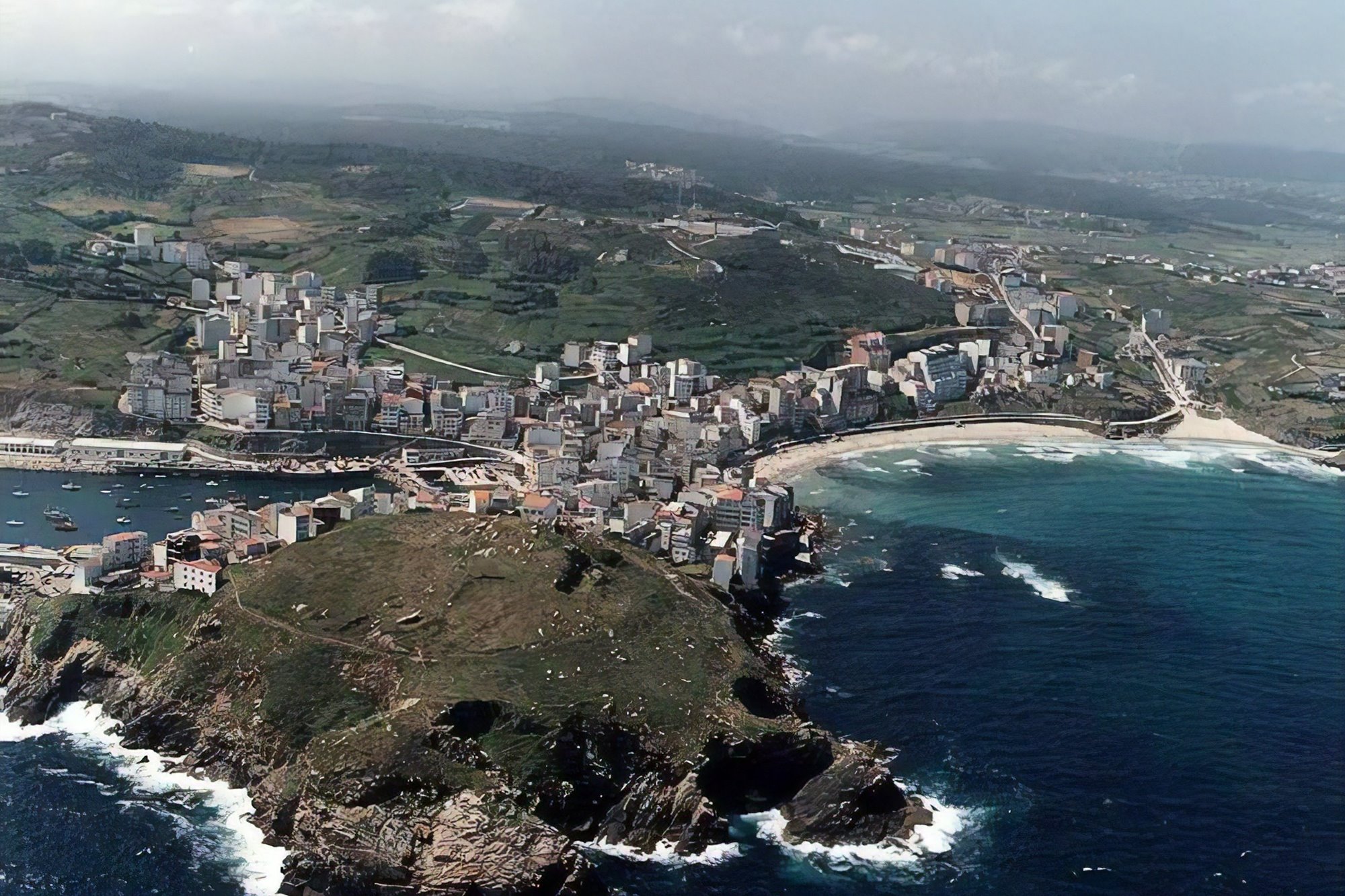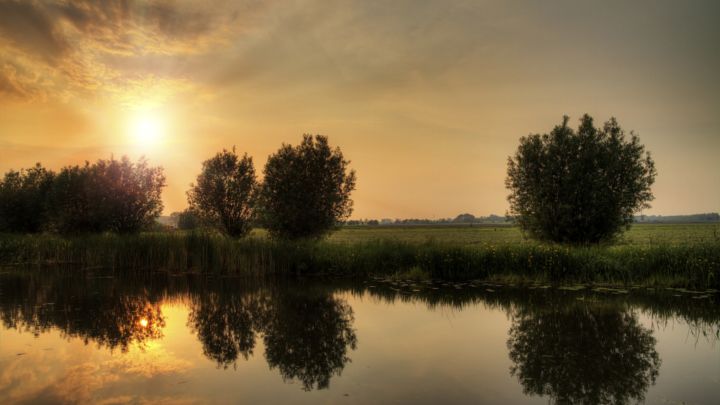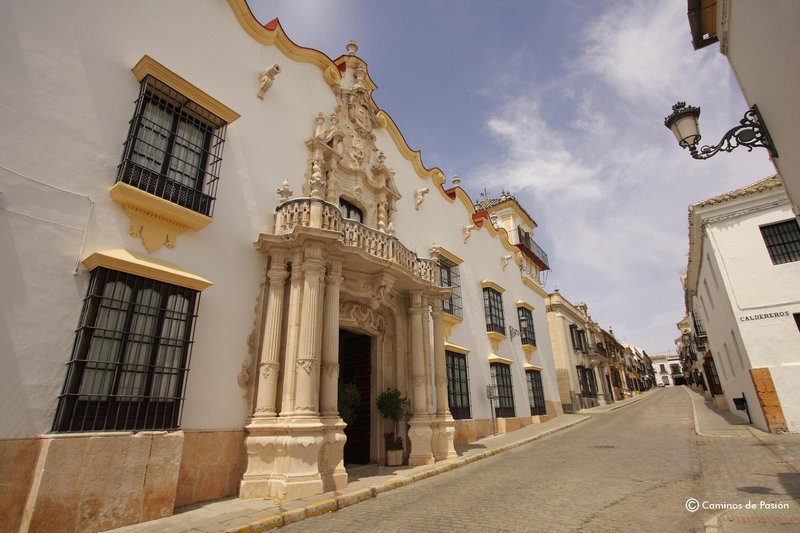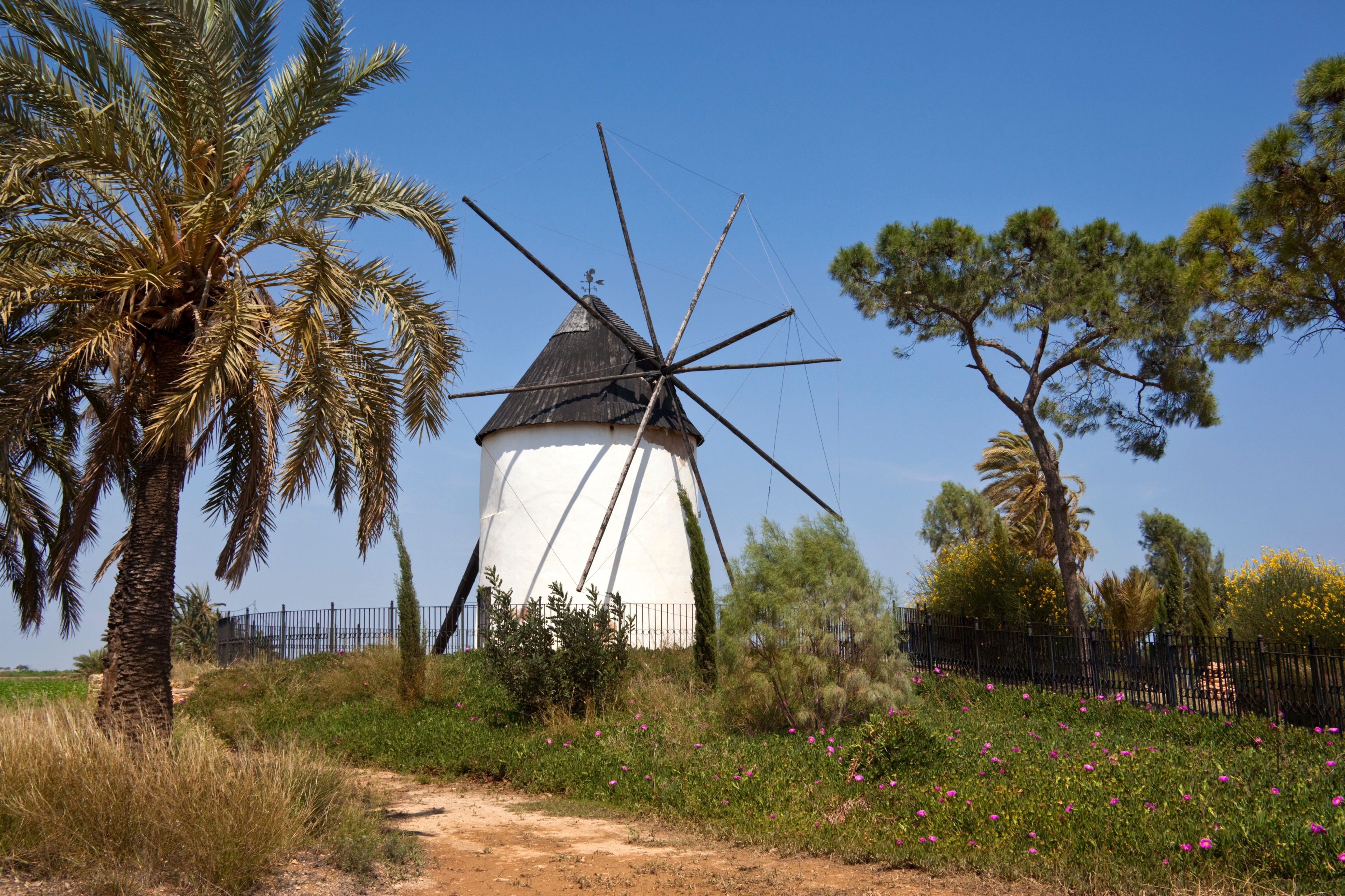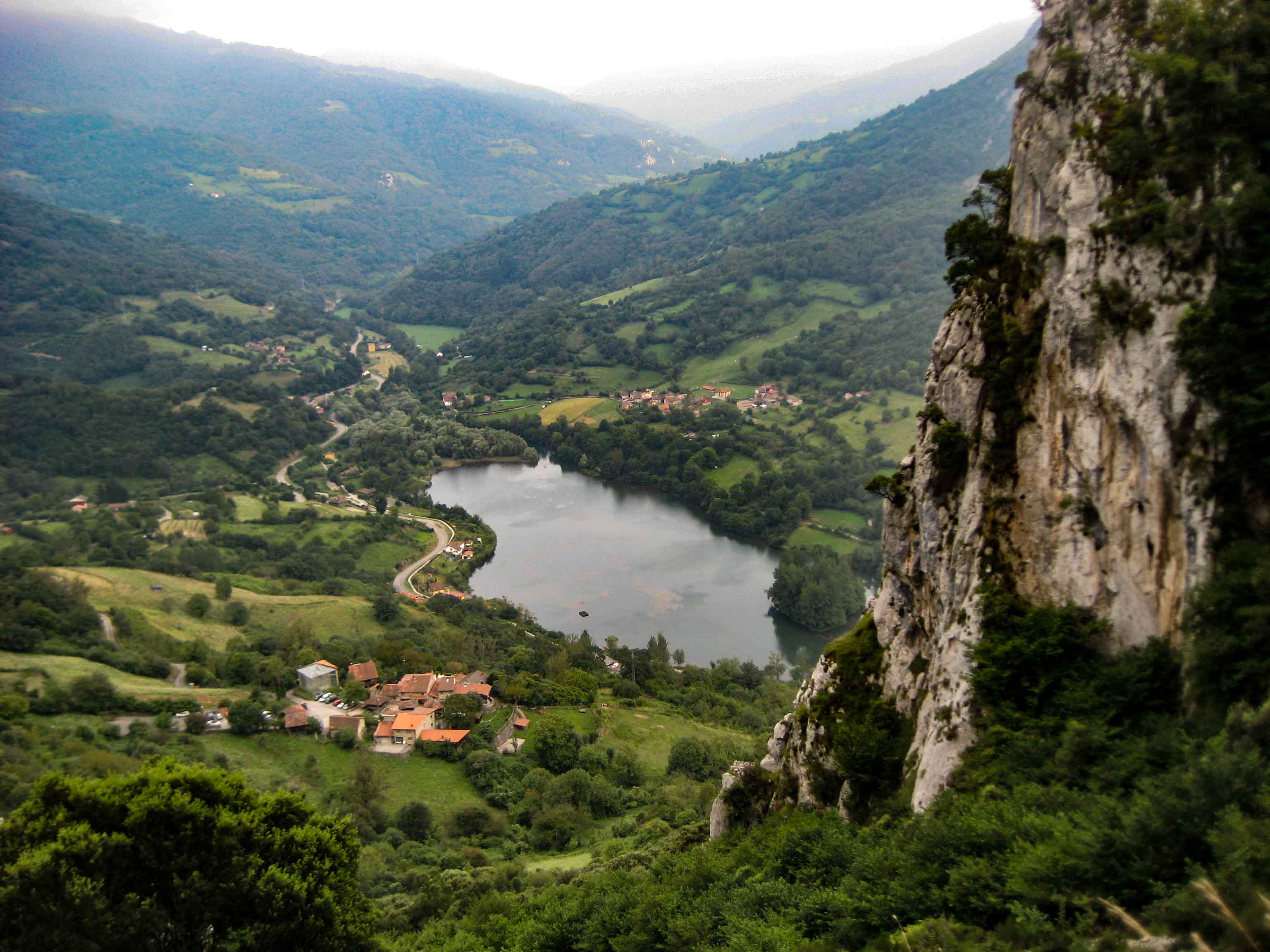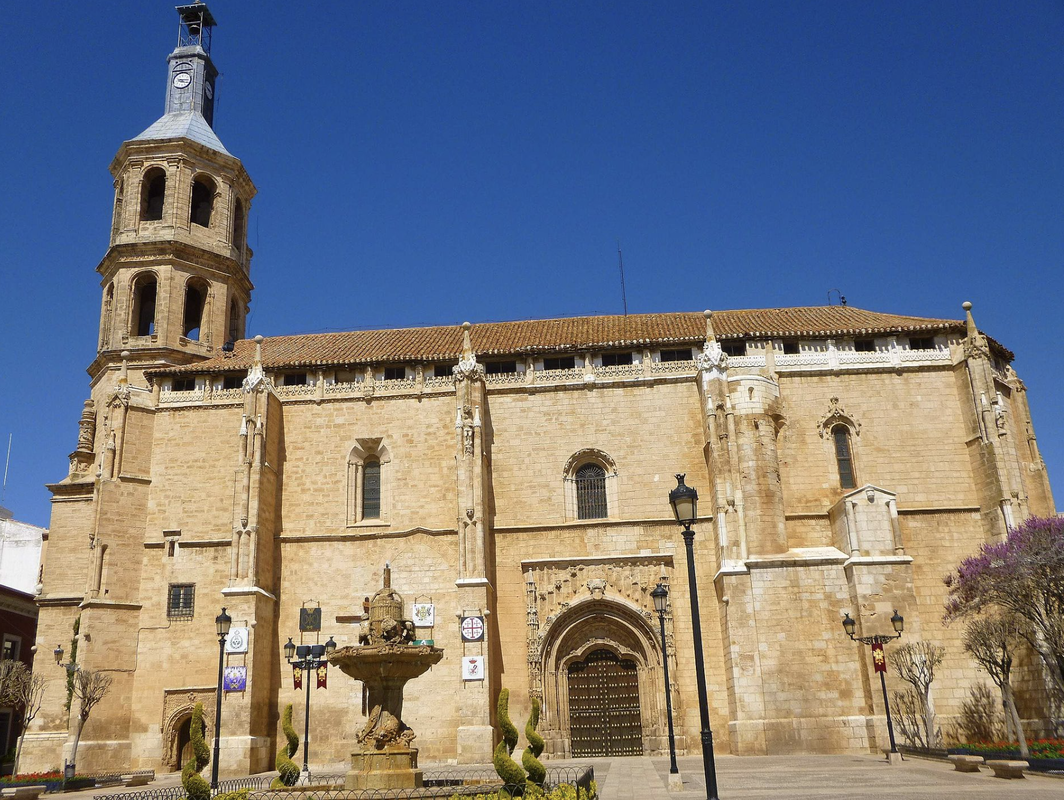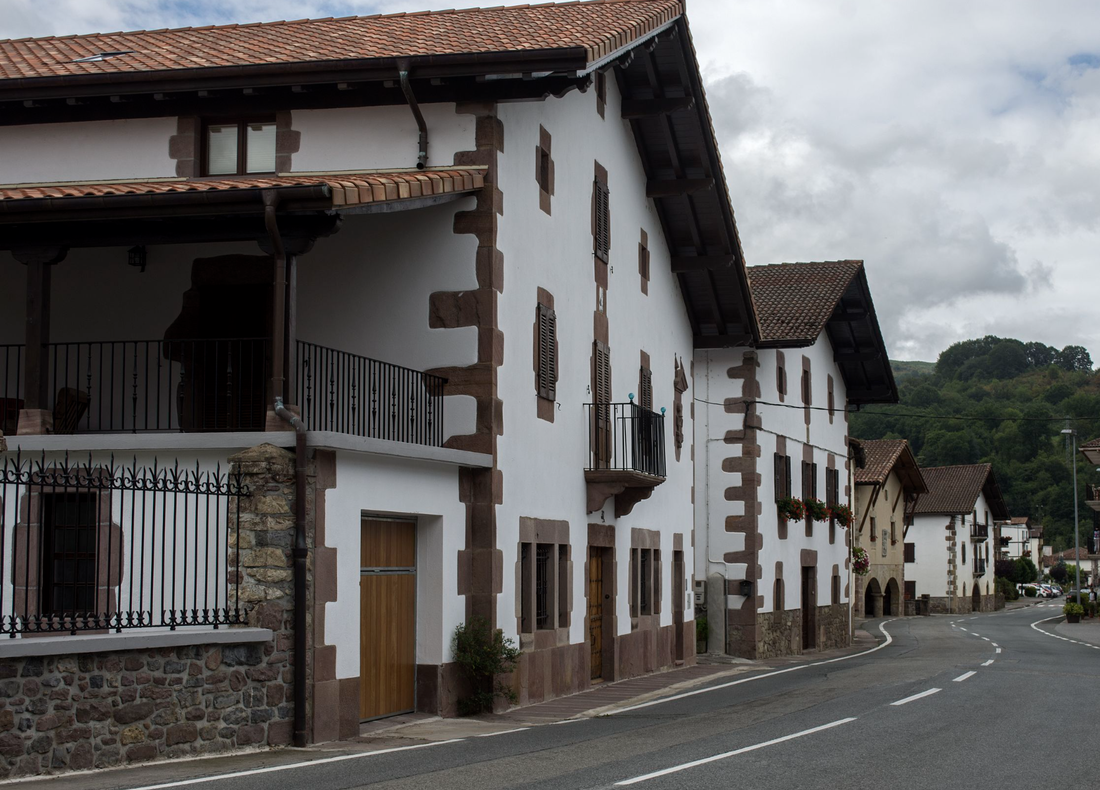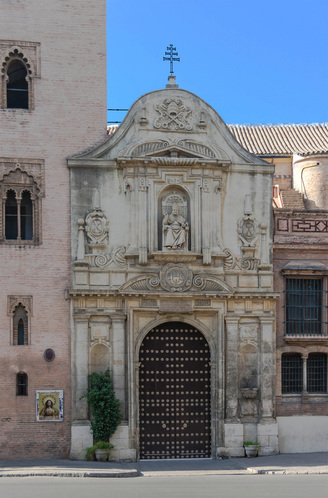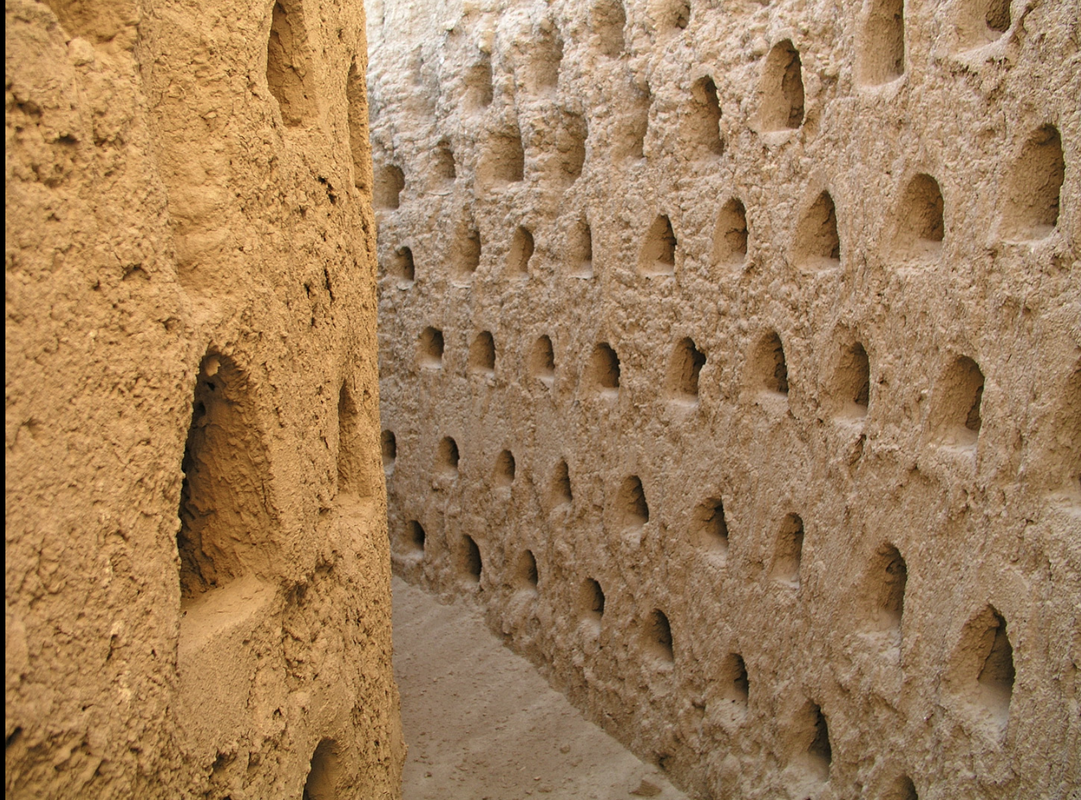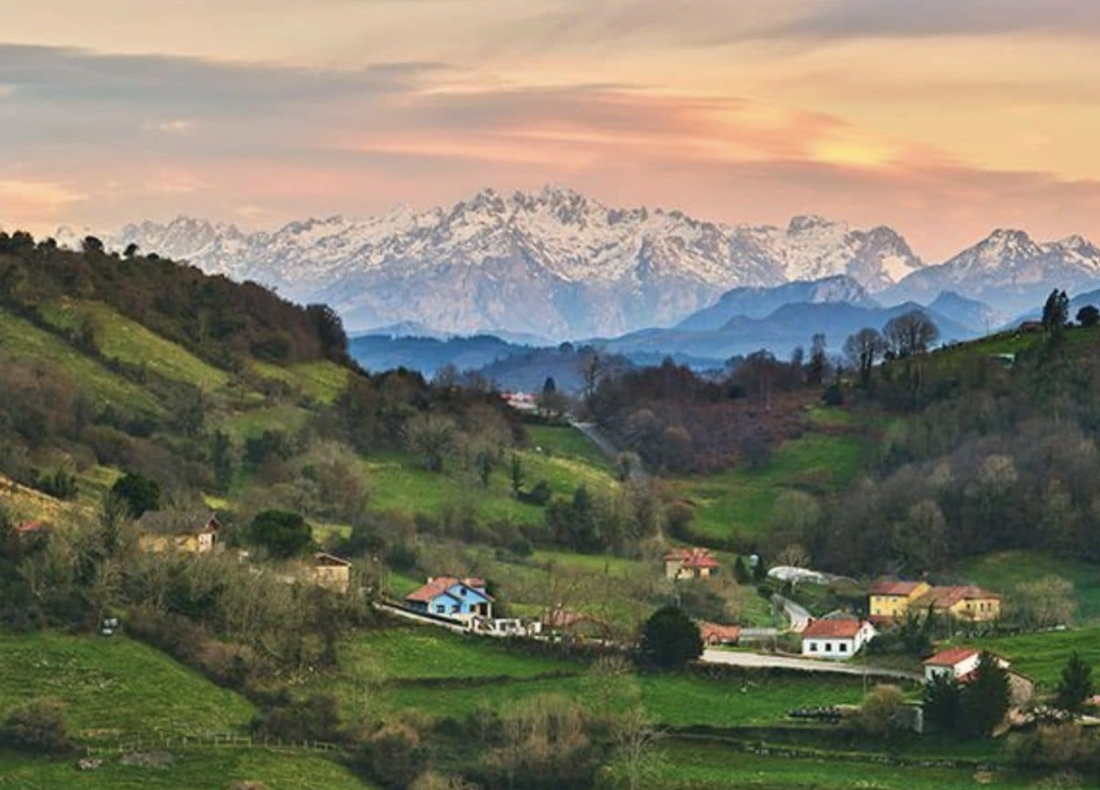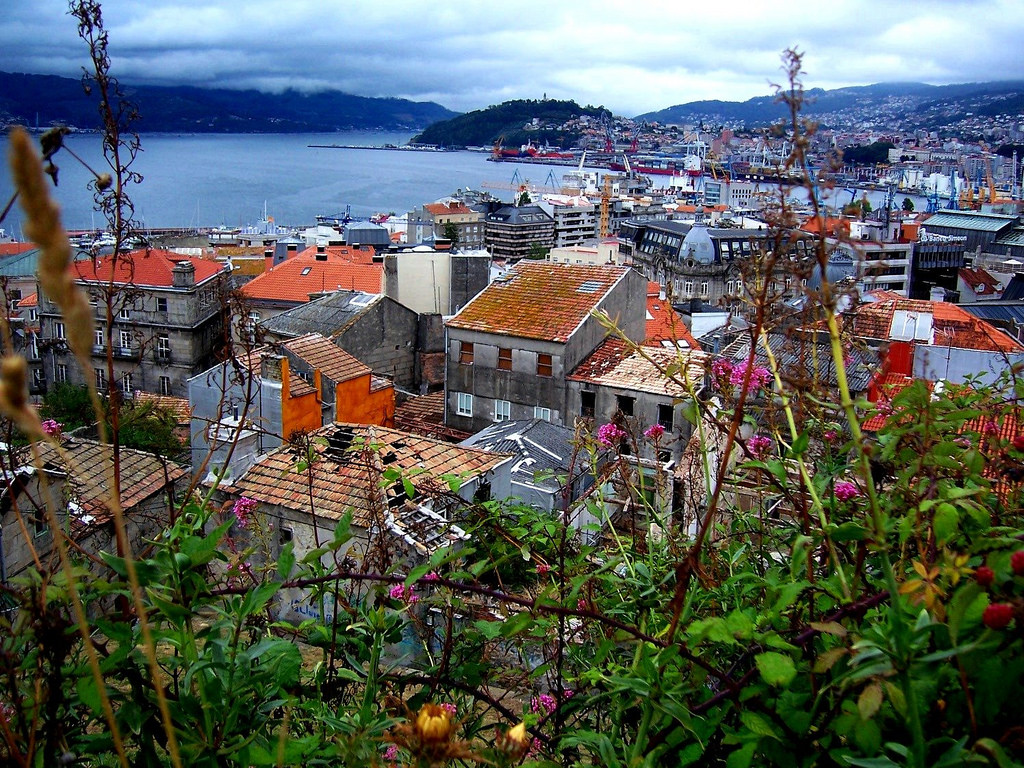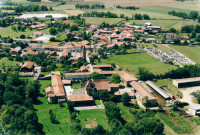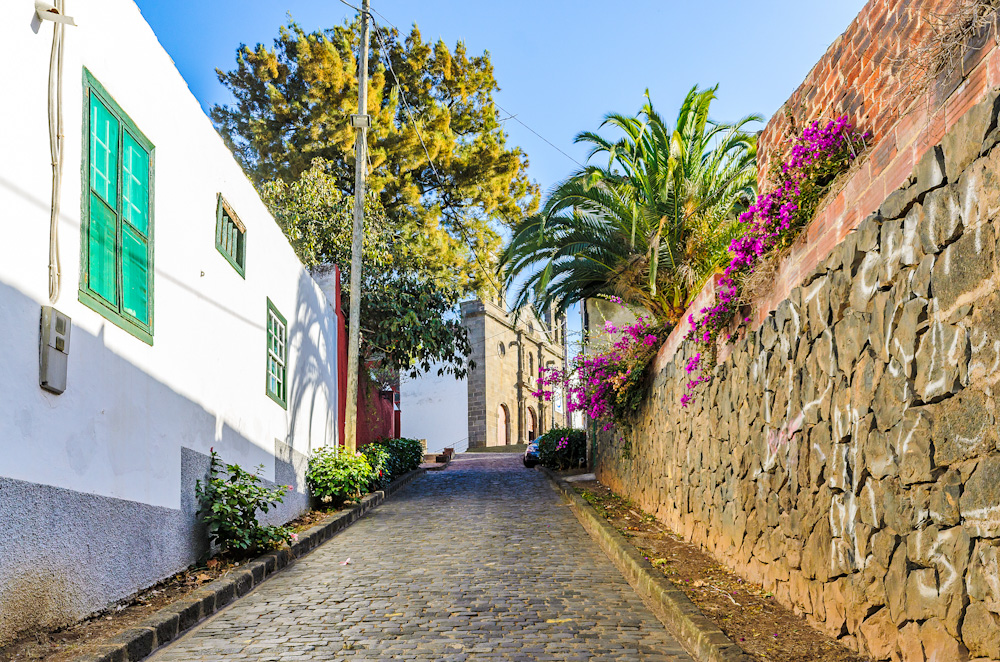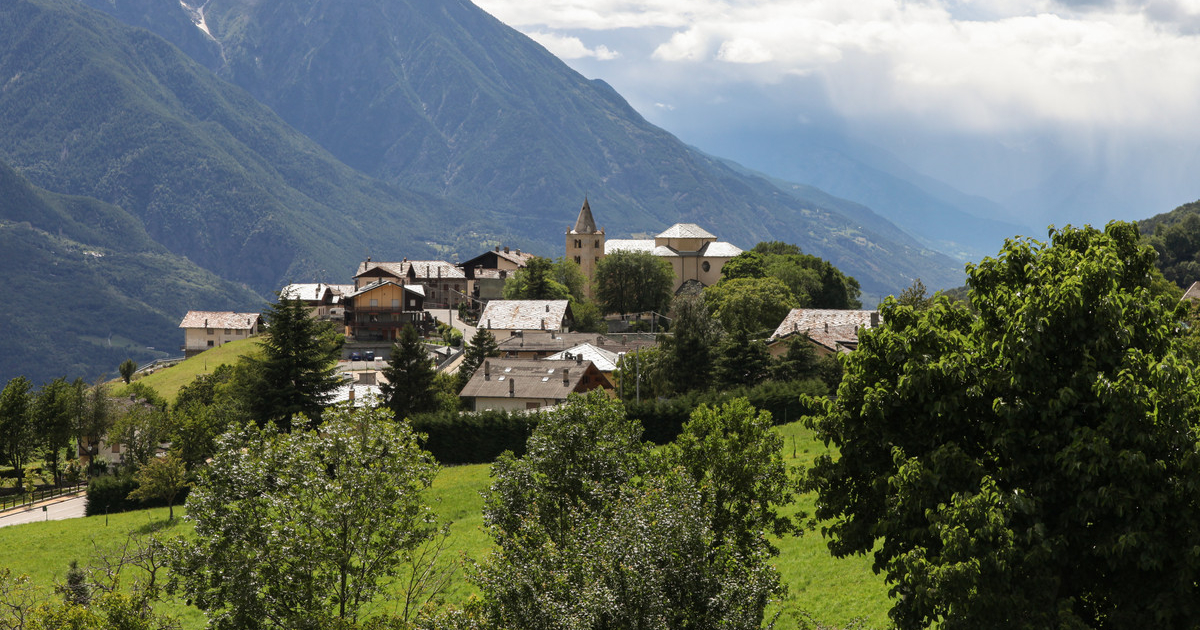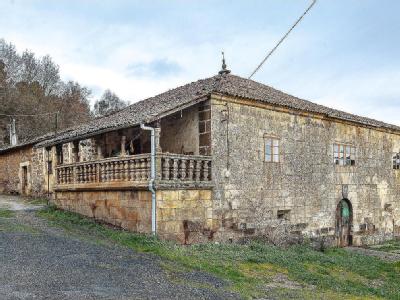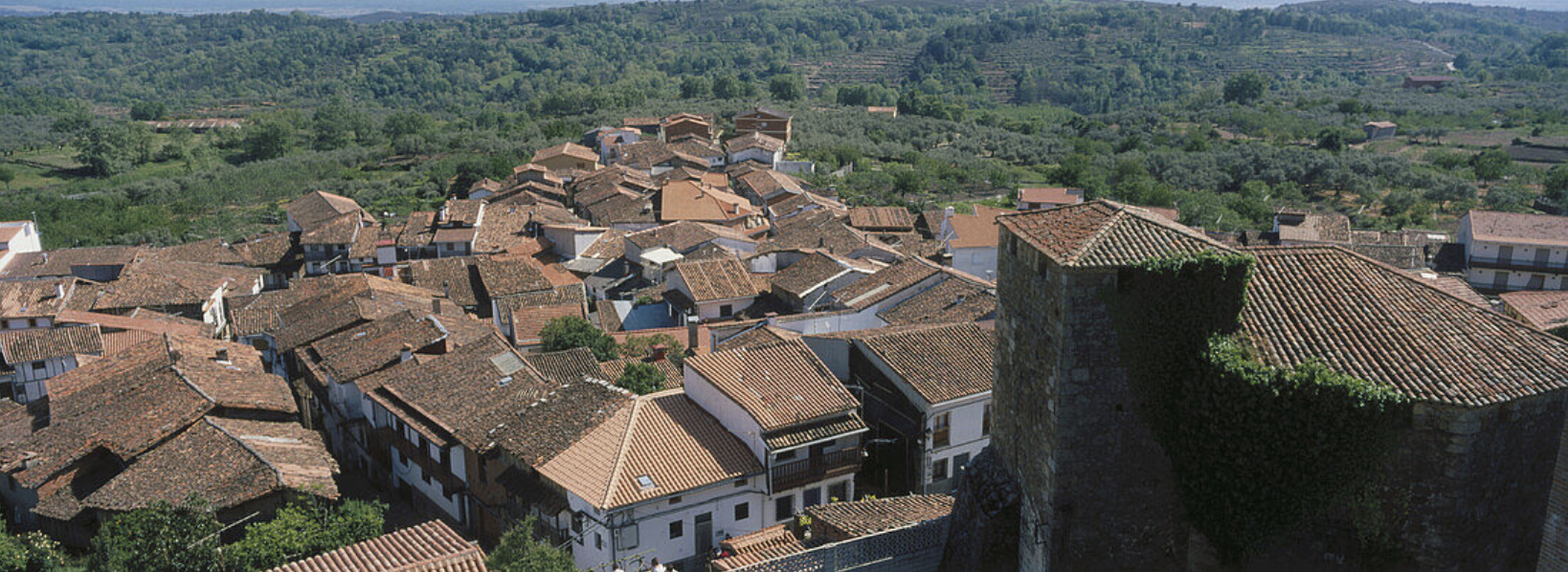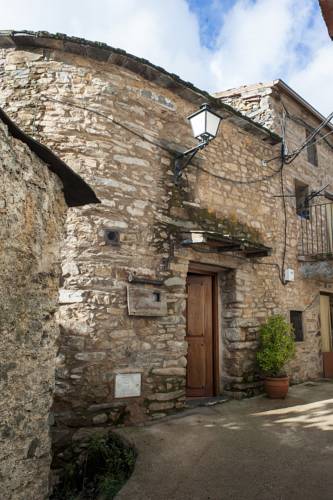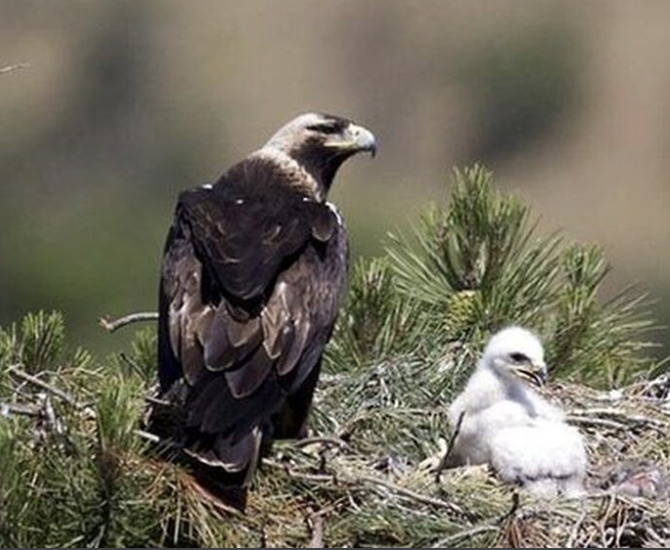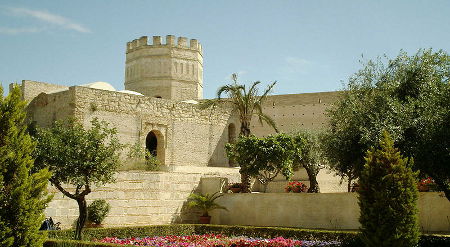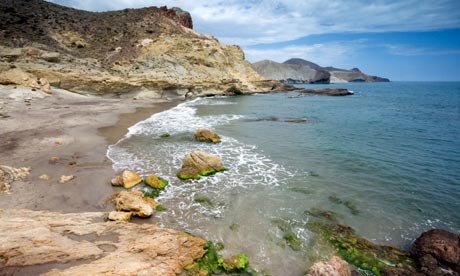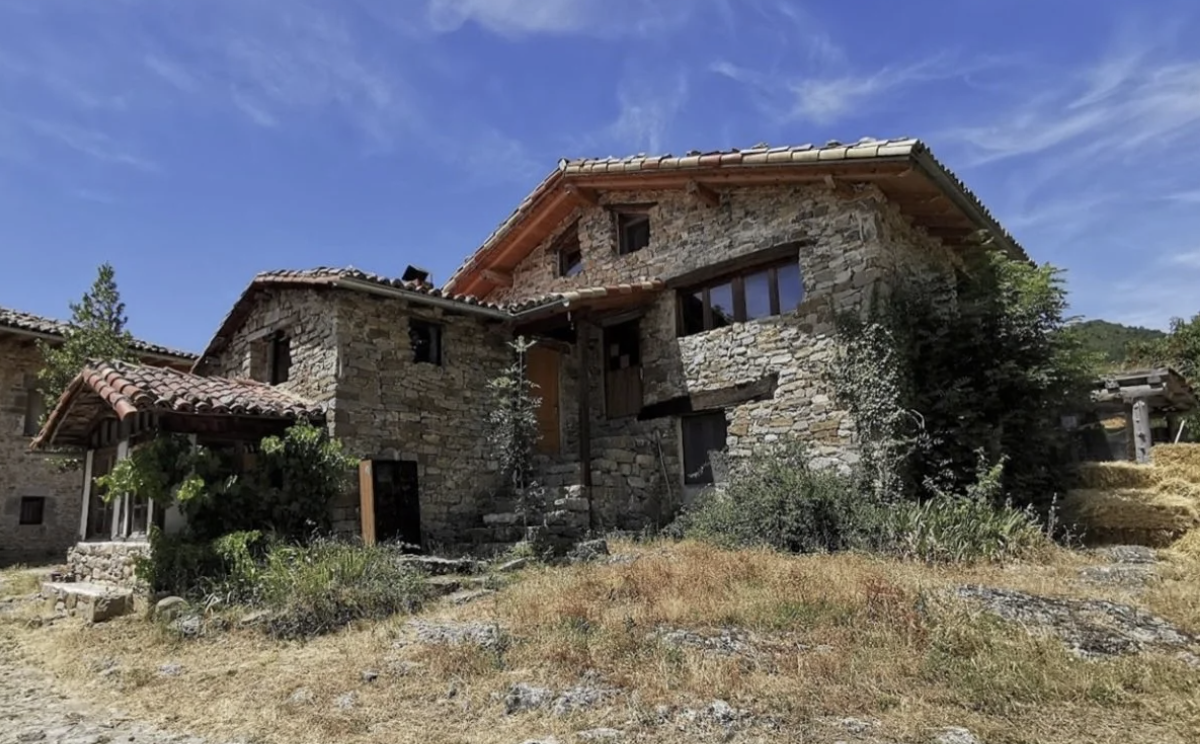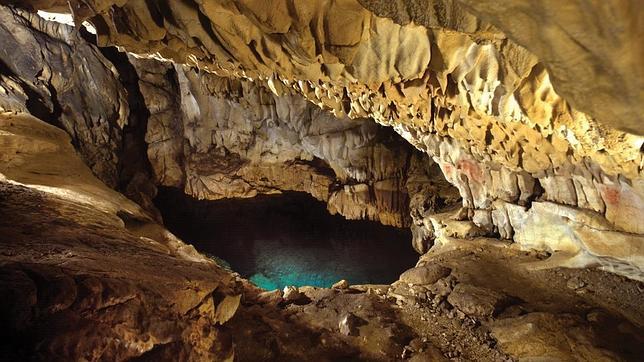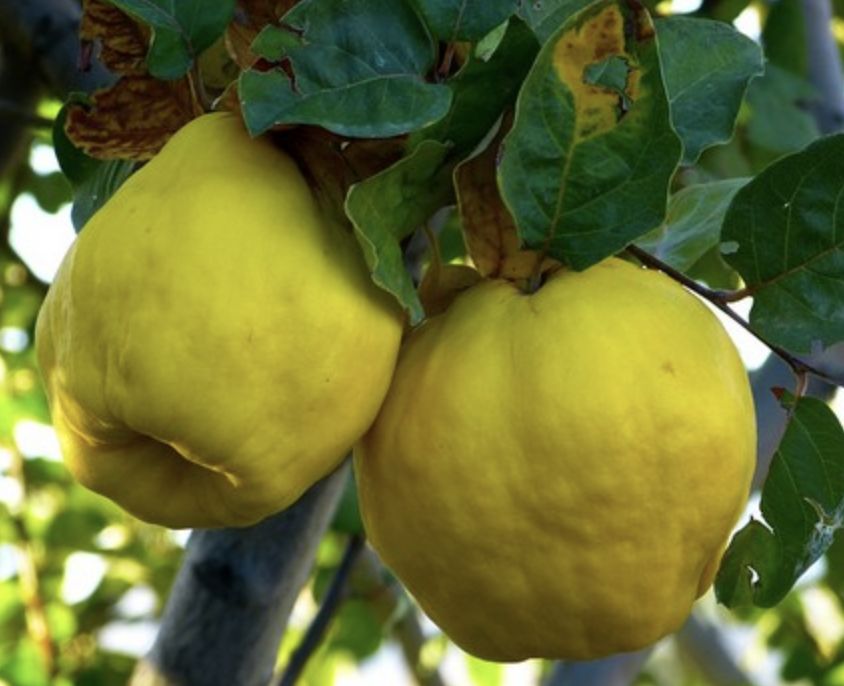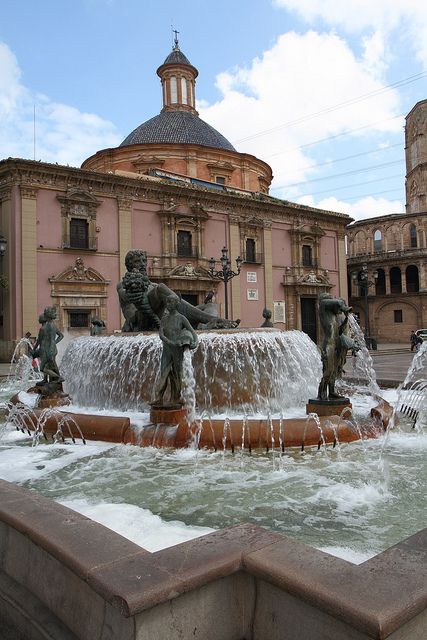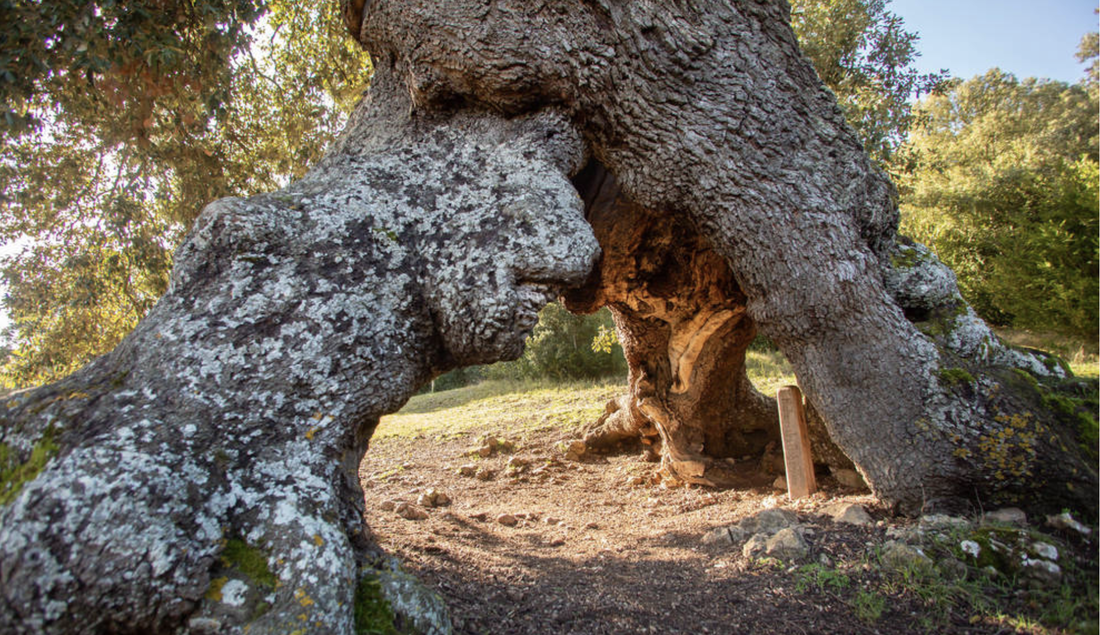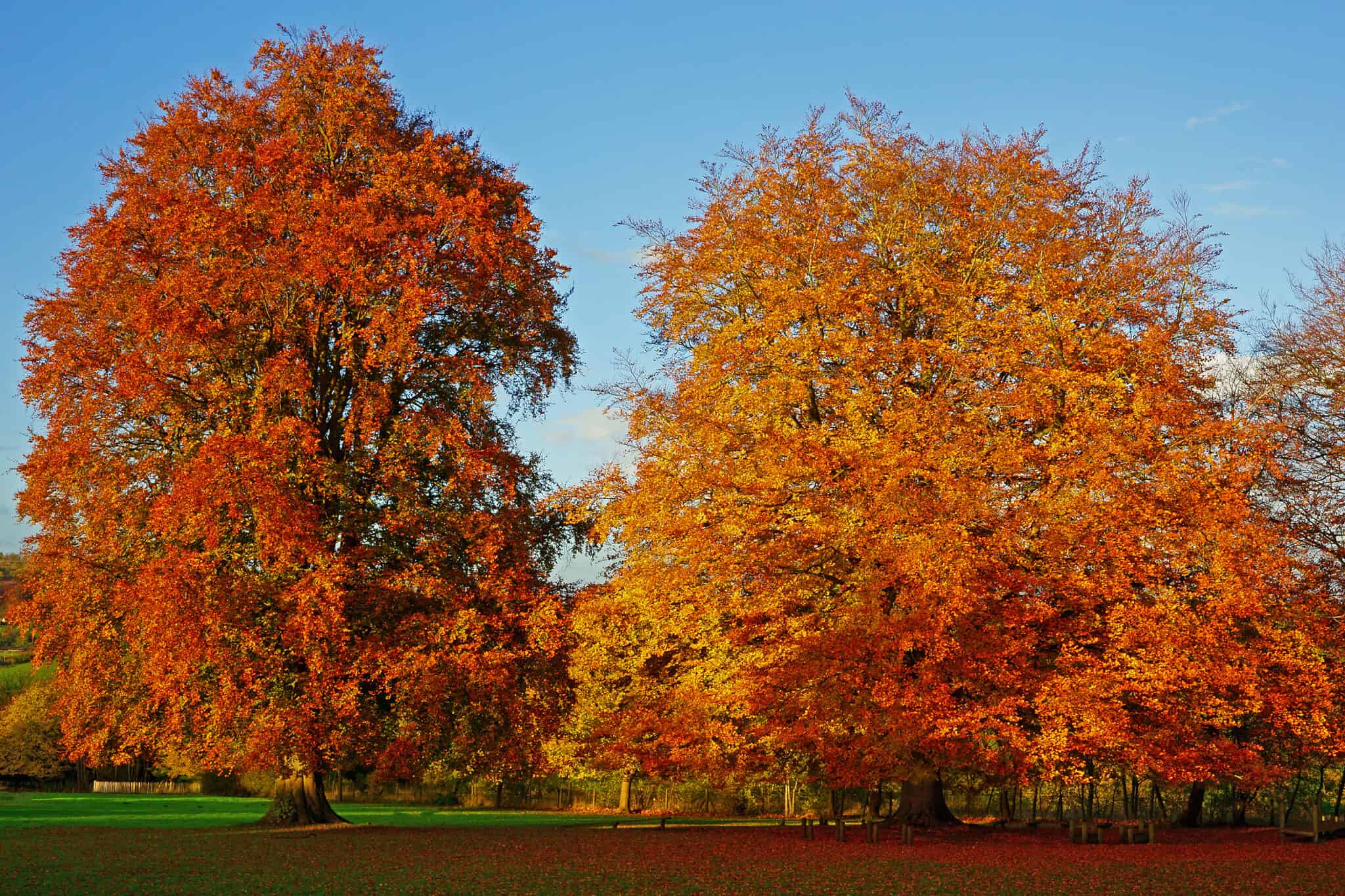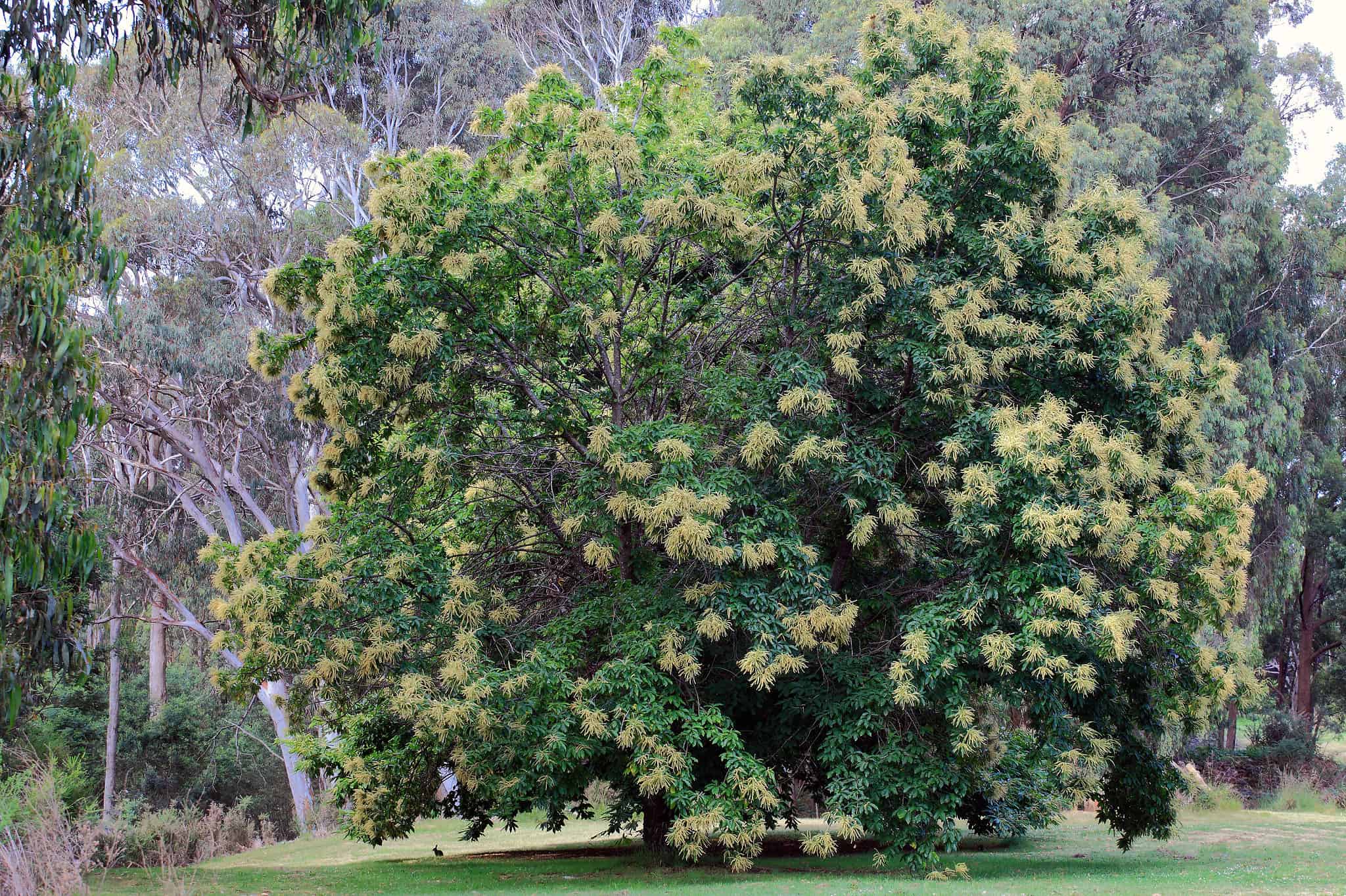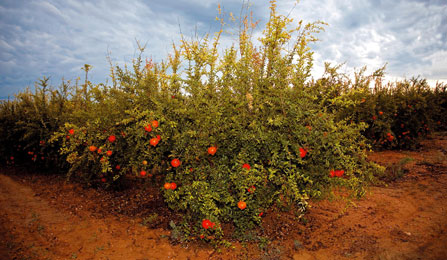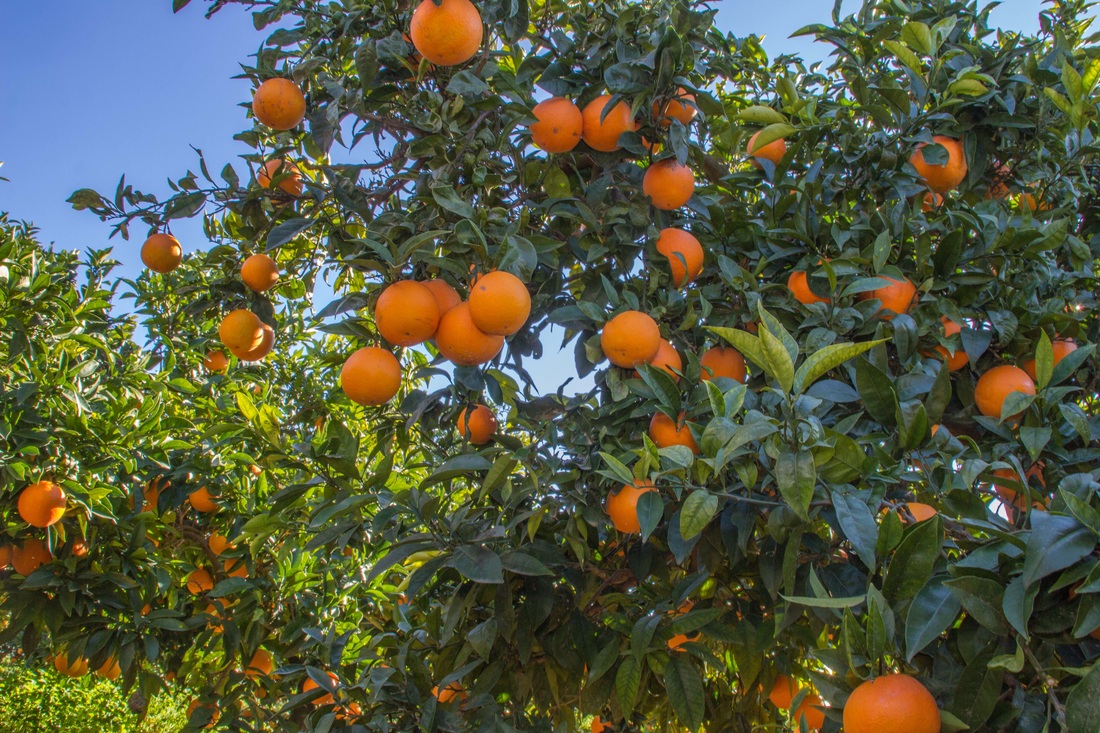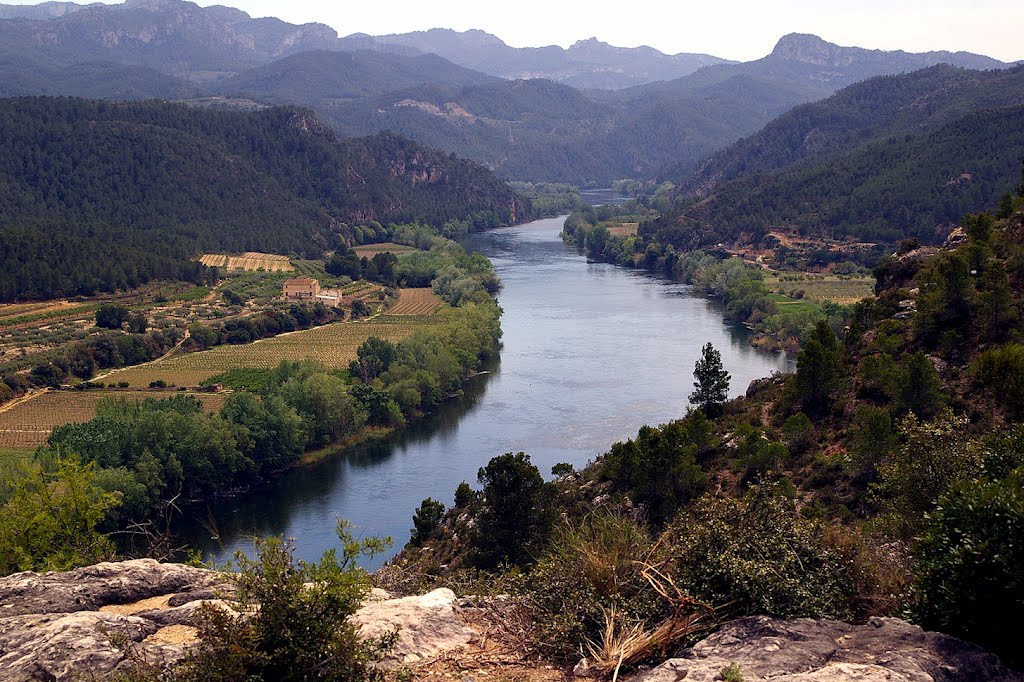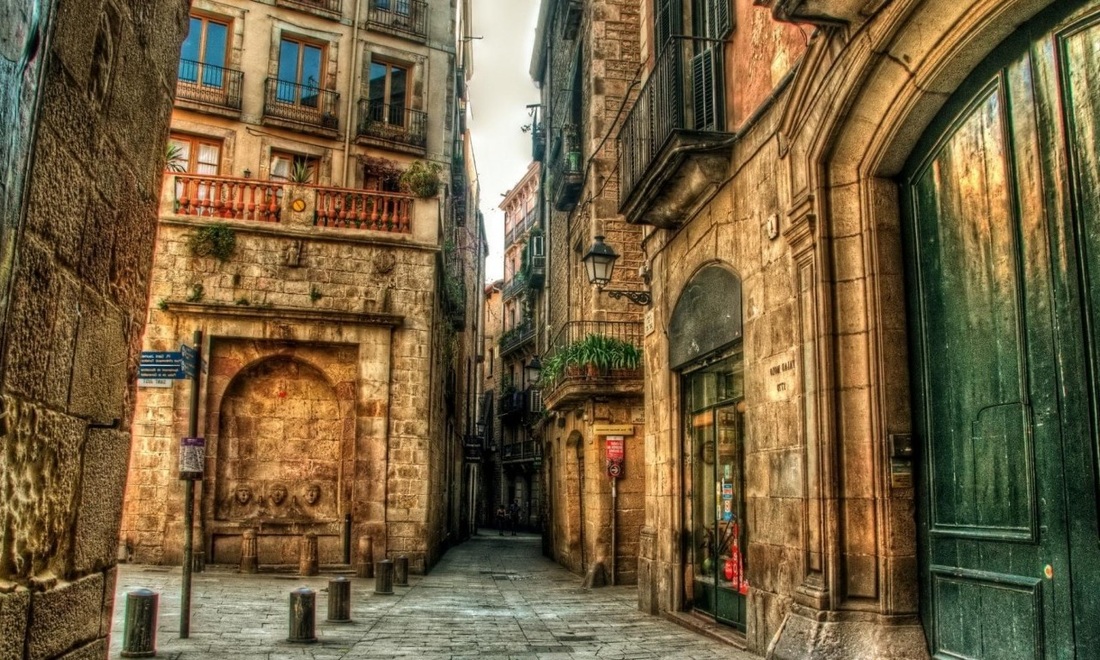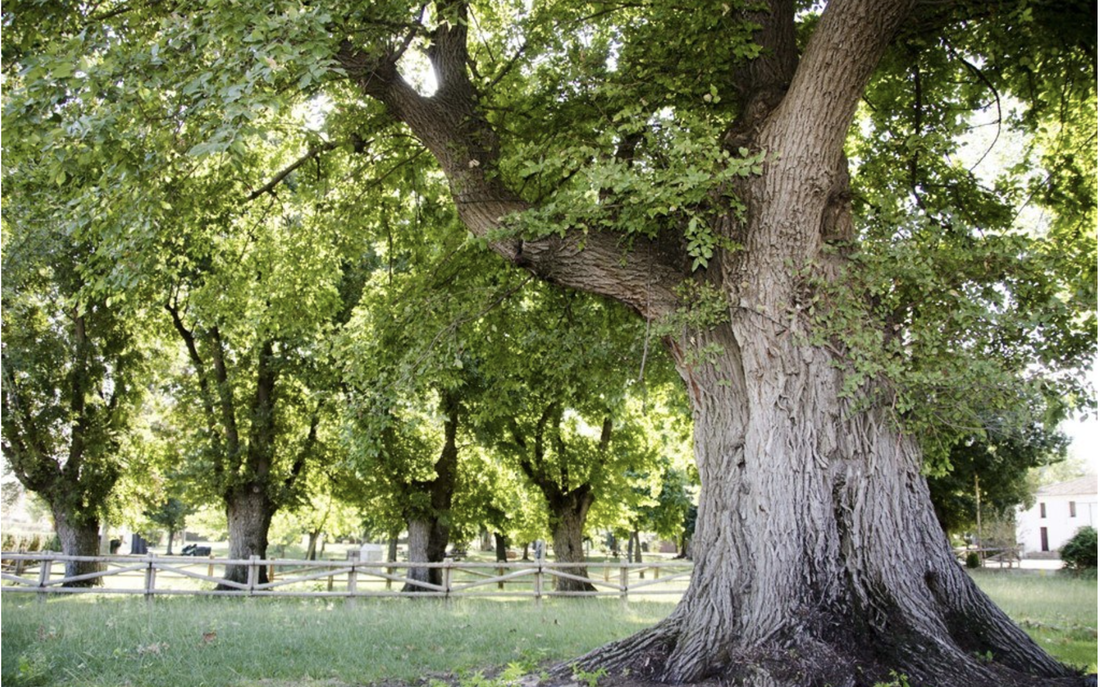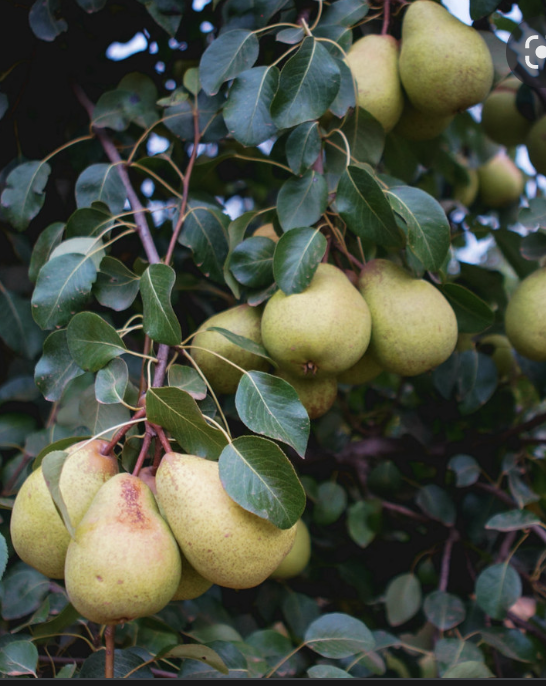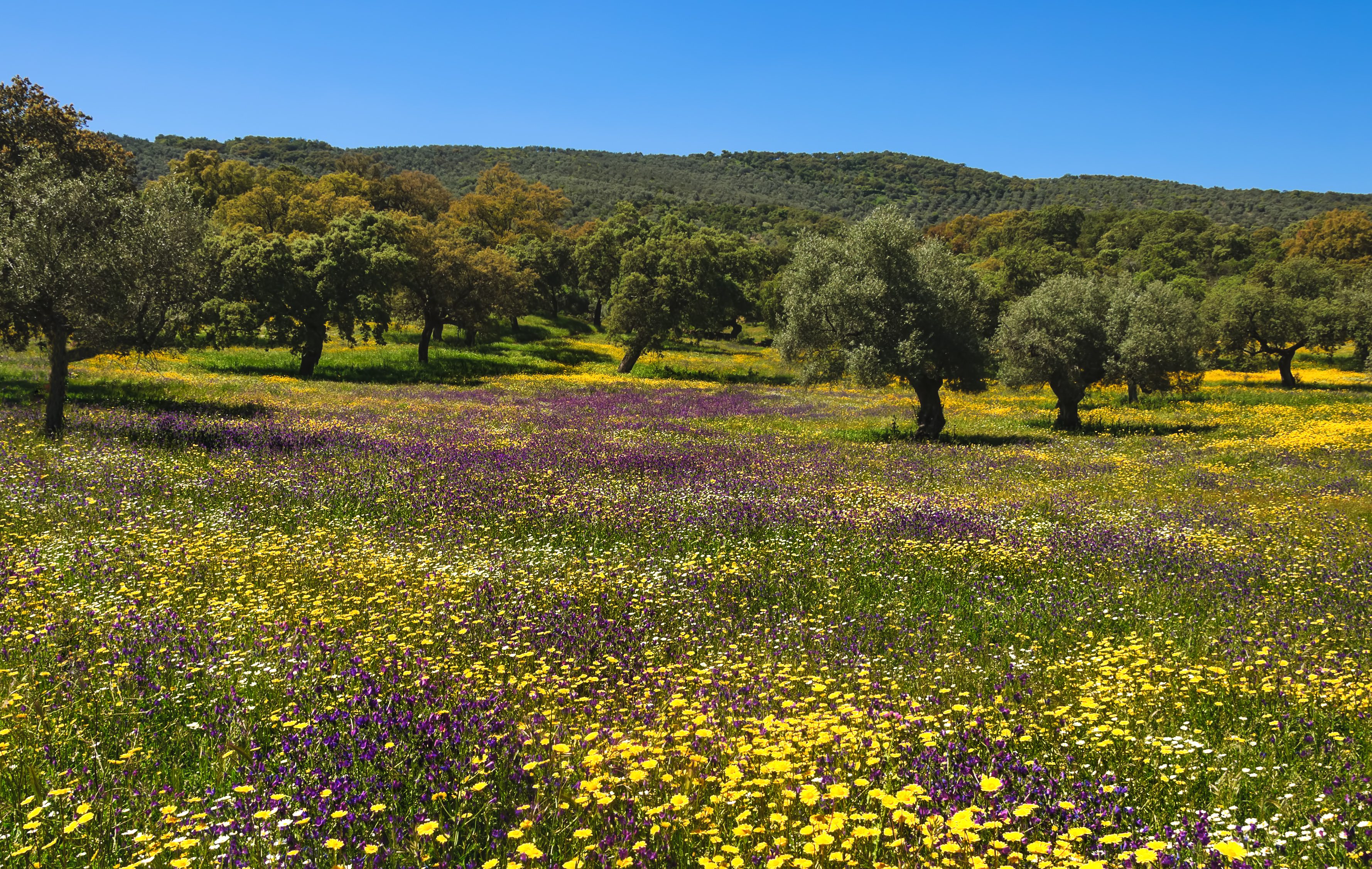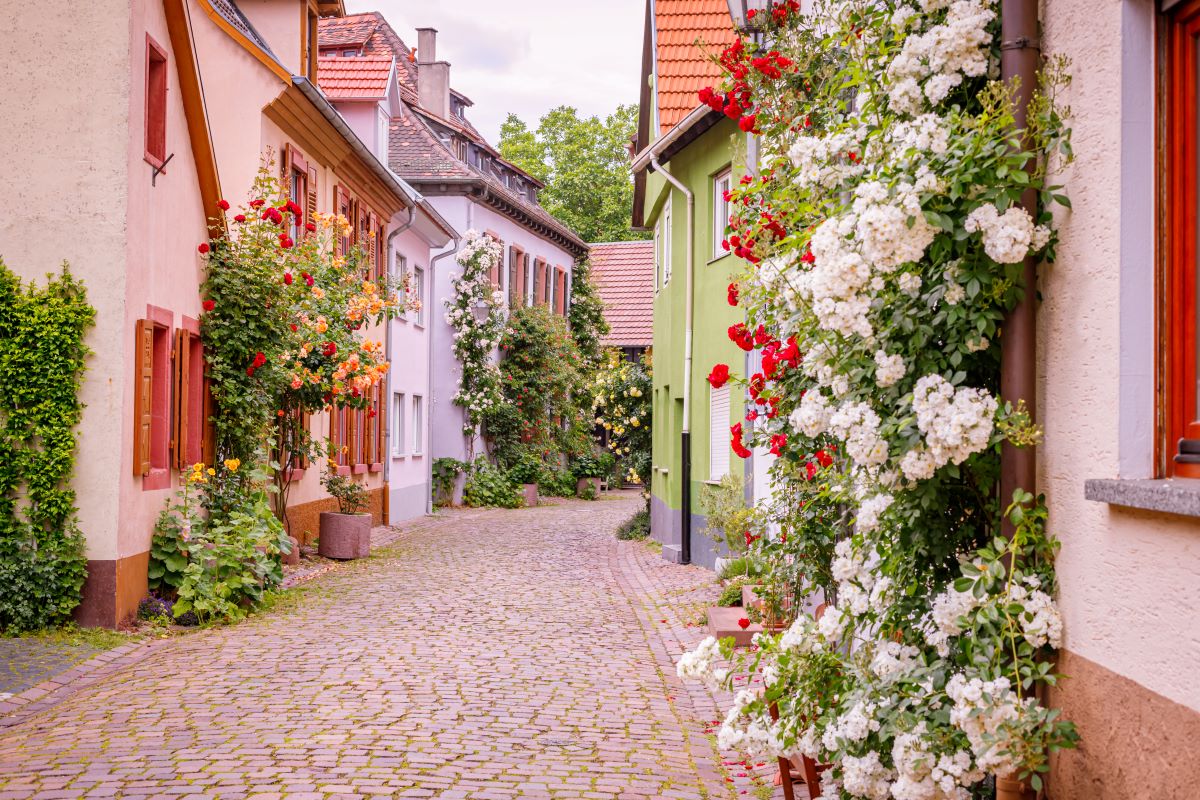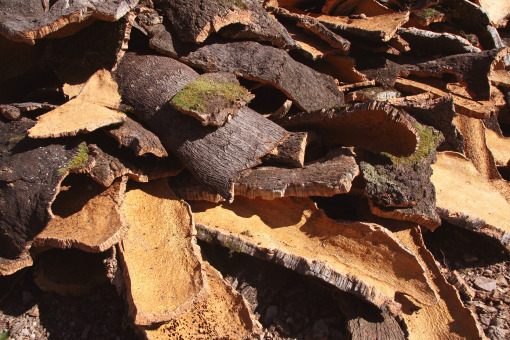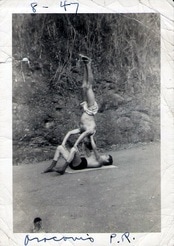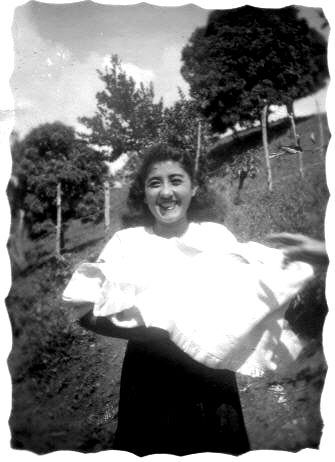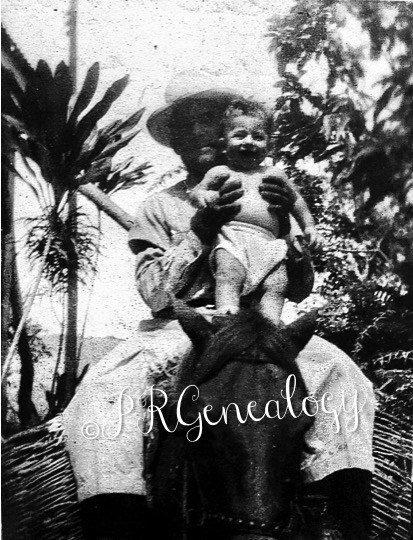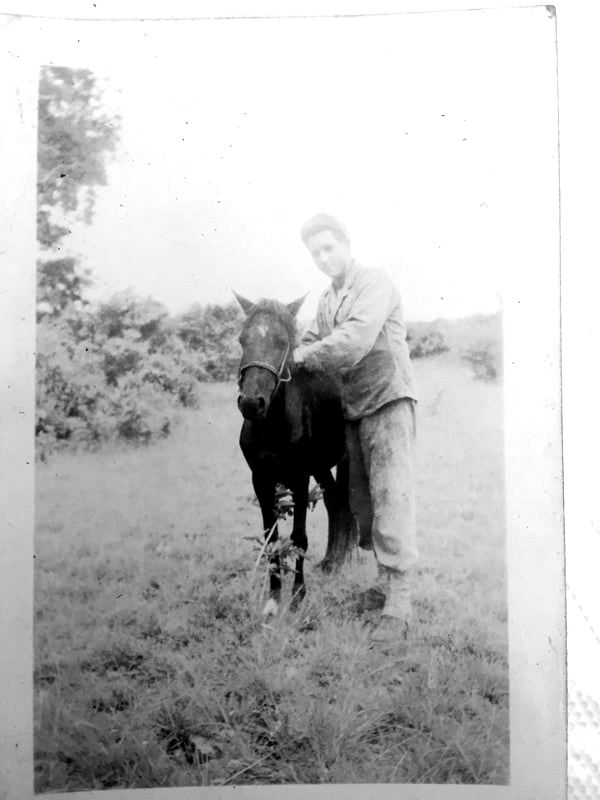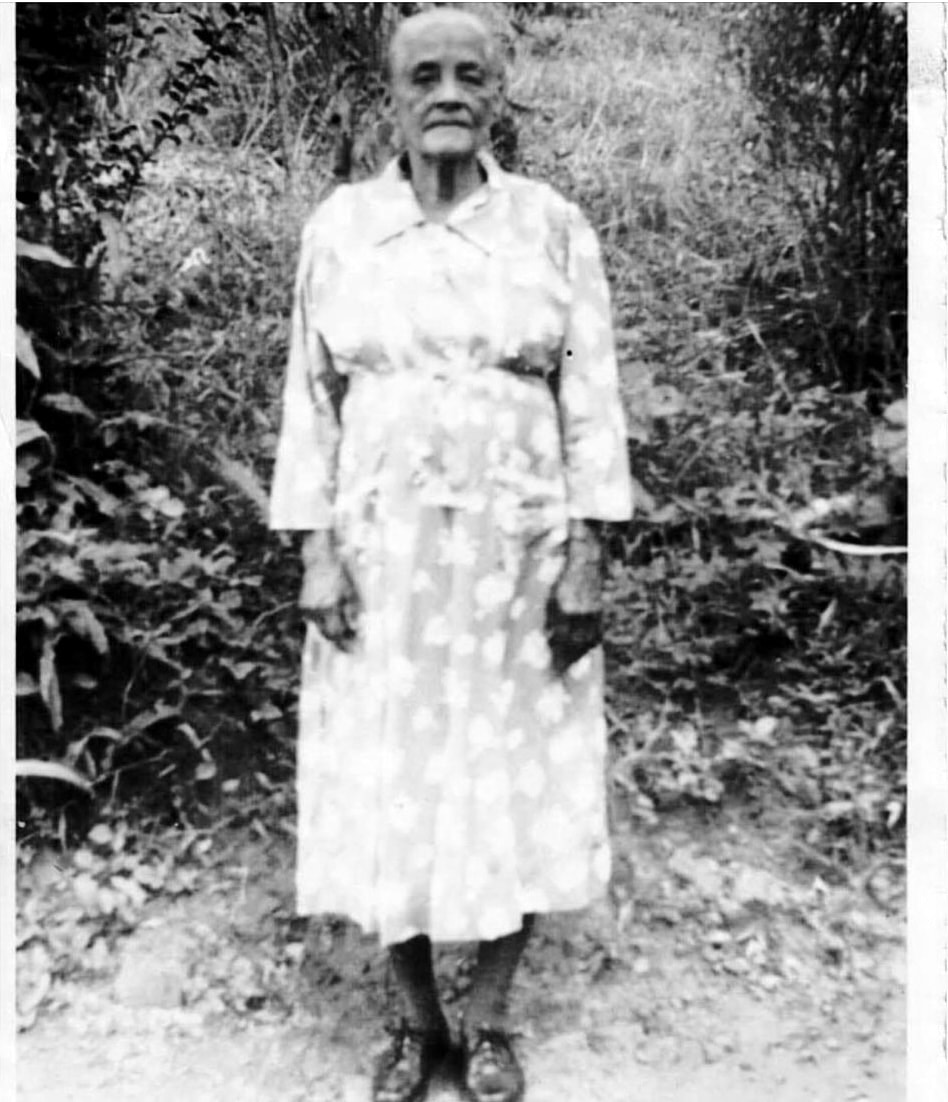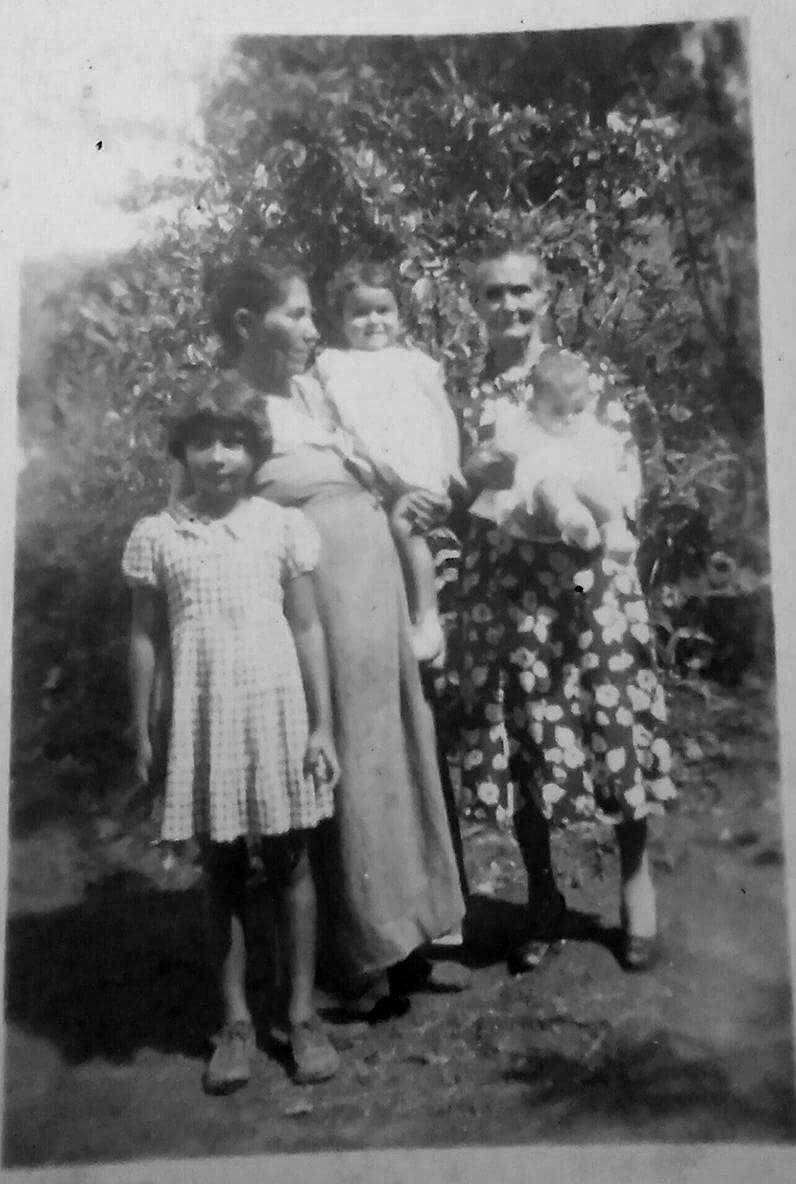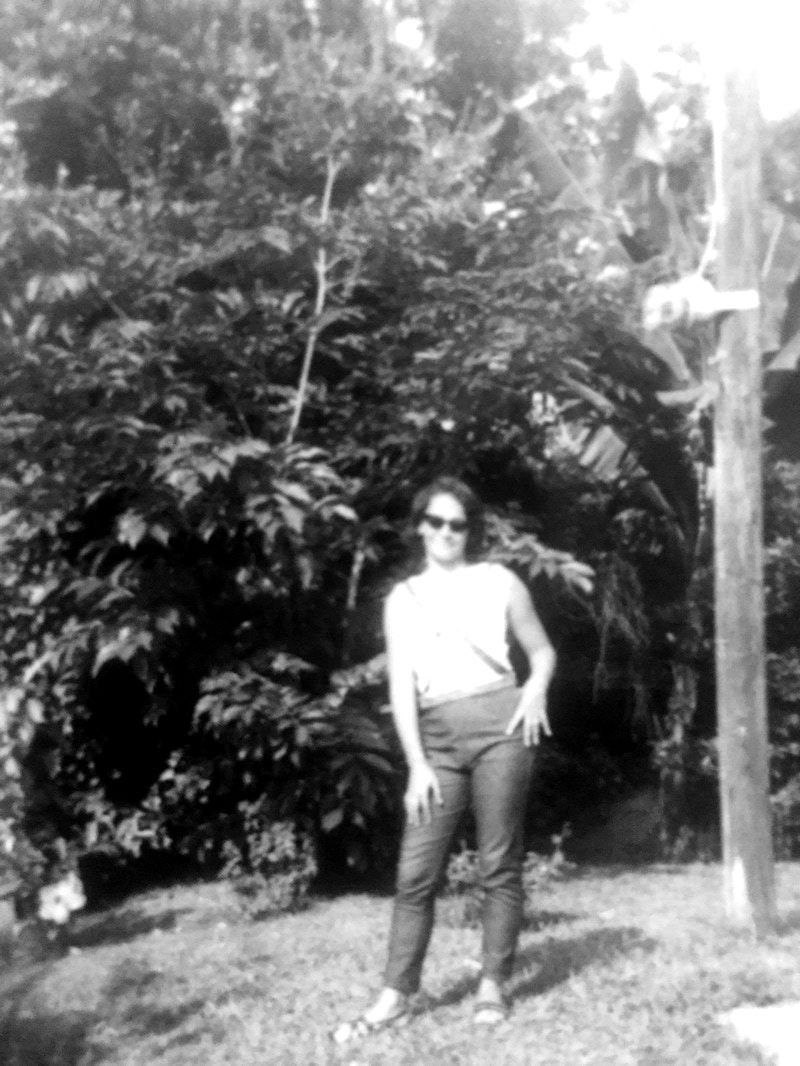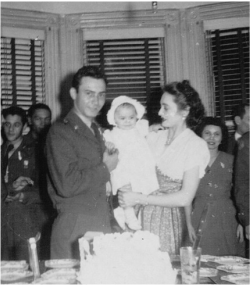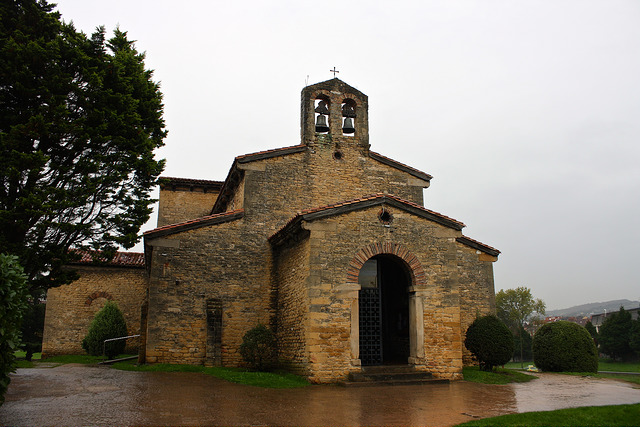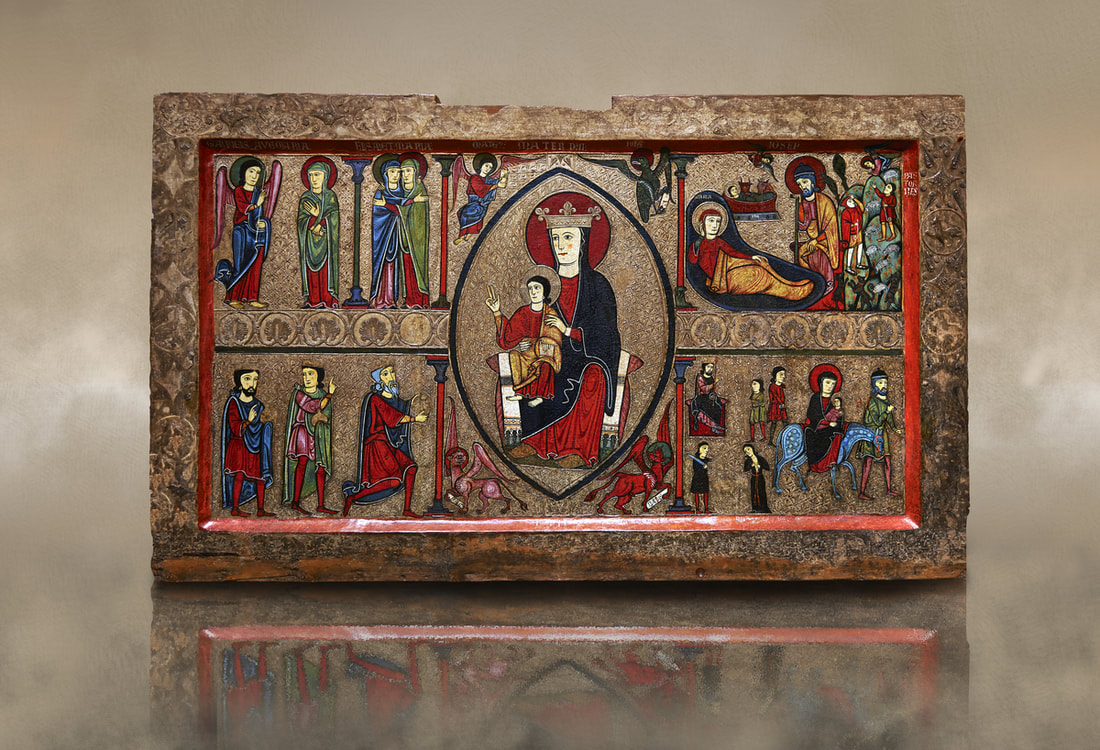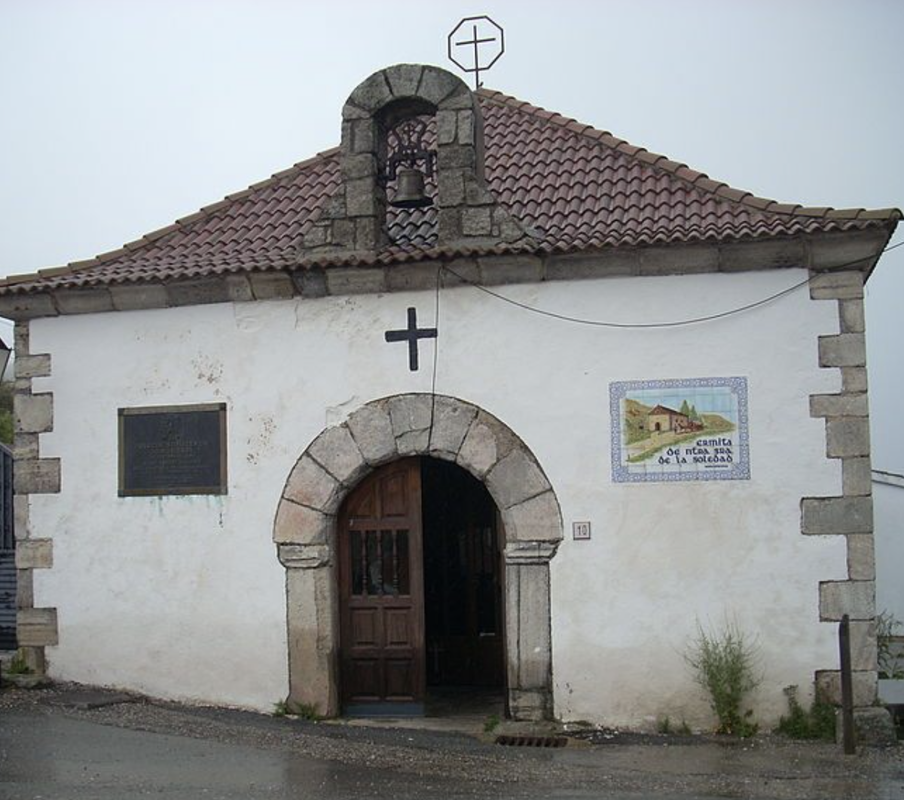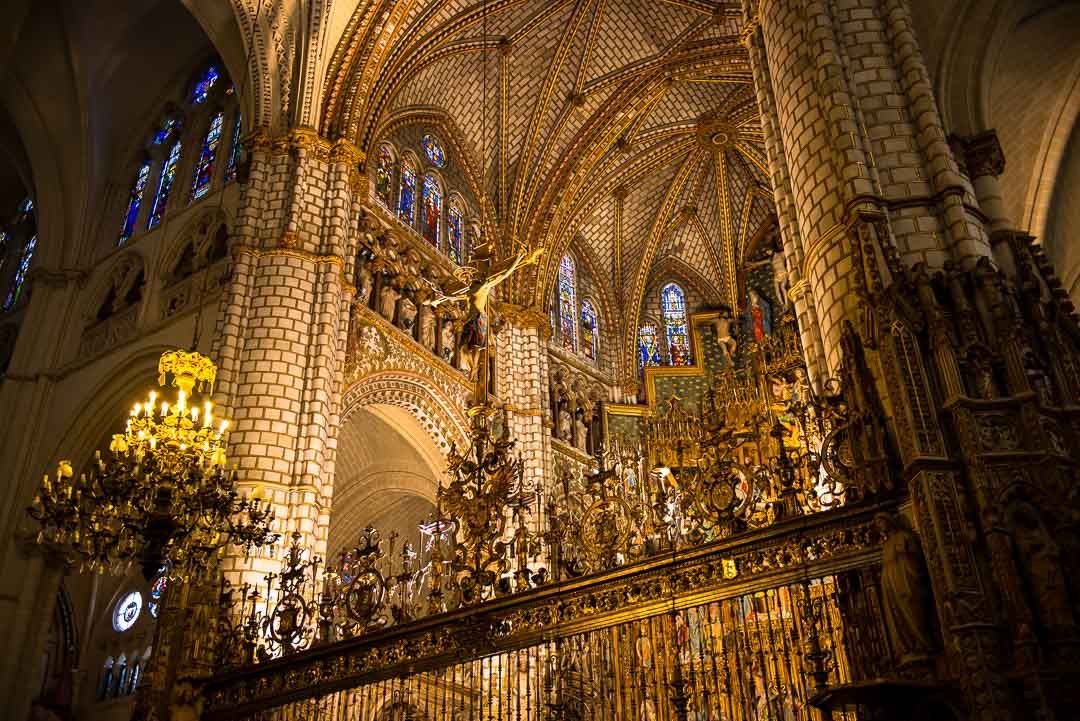She has 3 last names? Really? |
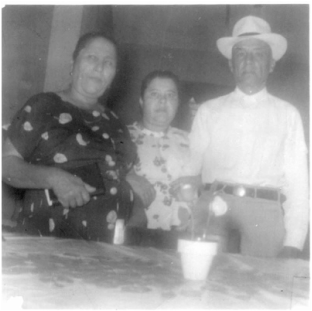 Luisa Rivera Y Garcia, Titina Feliciano Y Rivera, Leon Garcia Y Feliciano, Ceiba, 1945
Luisa Rivera Y Garcia, Titina Feliciano Y Rivera, Leon Garcia Y Feliciano, Ceiba, 1945
Yes, it's true! Your great-grandmother probably had three last names. While Puerto Rican last names might seem a bit confusing at first, they're actually quite beneficial for genealogy research. Puerto Rican genealogy is significantly simplified due to the use of multiple surnames.
In Puerto Rico, the Spanish practice of using both parents' last names is followed. When a child is born, they are given a first and middle name, followed by the first last name of the father and then the first last name of the mother. For example, Maria Luisa Rivera Garcia. Sometimes, you may find the word "y," meaning "and," between the two last names, as in Tomas Rivera y Castro.
Upon marriage, a Puerto Rican woman has the option to add her husband's last name by using the word "de," meaning "of," before her husband's first last name. For instance, Maria Luisa Rivera Garcia de Feliciano or Maria Luisa Rivera y Garcia de Feliciano.
While this may seem like a mouthful to the average American, it's incredibly useful for genealogists for several reasons. Firstly, it makes tracking a person over time in various documents much easier. Secondly, it aids in identifying siblings when creating a larger family tree. Thirdly, when discovering cousins or grandchildren living in the same household, you can trace their parents by examining their two last names. And, of course, it eliminates the challenge of finding maiden names, making it significantly easier to trace back further generations with the mother's name already known.
When searching through Puerto Rican censuses, particularly in rural areas outside of the metropolitan regions like San Juan, Santurce, Ponce, and Bayamon, you'll notice that homes lack specific addresses. This is because much of Puerto Rico was rural, with families residing in villages and towns where homes were often located adjacent to those of parents and siblings.
If you locate an ancestor in the census, it's highly likely that by examining the pages before and after, you'll find siblings. How? By looking at their two last names! Cross-checking with ages is essential to ensure logical consistency. Given the relatively small size of villages and towns, it's rare to find more than one family with the same two last names—unless, of course, a set of brothers marries a set of sisters.
For example, if sisters Juana and Belen Diaz y Rodriguez marry brothers Luis and Jose Centeno y Laboy, all the children will have the last names Diaz y Centeno. I encountered this scenario in my own family history, but I had previously identified the sets of siblings in the 1910 census and then found them with their children in the 1930 census. Confusion avoided!
Census records for Puerto Rico are available online for 1910, 1920 (limited), 1930, and 1940. By using surnames as clues, you should be able to uncover a significant number of relatives!
In Puerto Rico, the Spanish practice of using both parents' last names is followed. When a child is born, they are given a first and middle name, followed by the first last name of the father and then the first last name of the mother. For example, Maria Luisa Rivera Garcia. Sometimes, you may find the word "y," meaning "and," between the two last names, as in Tomas Rivera y Castro.
Upon marriage, a Puerto Rican woman has the option to add her husband's last name by using the word "de," meaning "of," before her husband's first last name. For instance, Maria Luisa Rivera Garcia de Feliciano or Maria Luisa Rivera y Garcia de Feliciano.
While this may seem like a mouthful to the average American, it's incredibly useful for genealogists for several reasons. Firstly, it makes tracking a person over time in various documents much easier. Secondly, it aids in identifying siblings when creating a larger family tree. Thirdly, when discovering cousins or grandchildren living in the same household, you can trace their parents by examining their two last names. And, of course, it eliminates the challenge of finding maiden names, making it significantly easier to trace back further generations with the mother's name already known.
When searching through Puerto Rican censuses, particularly in rural areas outside of the metropolitan regions like San Juan, Santurce, Ponce, and Bayamon, you'll notice that homes lack specific addresses. This is because much of Puerto Rico was rural, with families residing in villages and towns where homes were often located adjacent to those of parents and siblings.
If you locate an ancestor in the census, it's highly likely that by examining the pages before and after, you'll find siblings. How? By looking at their two last names! Cross-checking with ages is essential to ensure logical consistency. Given the relatively small size of villages and towns, it's rare to find more than one family with the same two last names—unless, of course, a set of brothers marries a set of sisters.
For example, if sisters Juana and Belen Diaz y Rodriguez marry brothers Luis and Jose Centeno y Laboy, all the children will have the last names Diaz y Centeno. I encountered this scenario in my own family history, but I had previously identified the sets of siblings in the 1910 census and then found them with their children in the 1930 census. Confusion avoided!
Census records for Puerto Rico are available online for 1910, 1920 (limited), 1930, and 1940. By using surnames as clues, you should be able to uncover a significant number of relatives!
What kind of information do surnames reveal?
Investigating Puerto Rican surnames serves another purpose—it offers a glimpse into your deeper past. Surnames can unveil insights into the founding of towns in Puerto Rico. Notably, not all Puerto Rican surnames are Spanish, and this revelation could be pivotal in constructing your family tree. Puerto Rican surnames can provide clues to ancestral origins in Spain, Portugal, France, Italy, Corsica, other Caribbean islands, or elsewhere in the world. Unfortunately, indigenous and African names may remain a mystery forever, but DNA testing can aid in uncovering these origins.
You may encounter an English surname indicating an ancestor from St. John, or a surname ending with 'i' suggesting Corsican heritage. Additionally, a surname spelled with an 'x' instead of a 'j' could be a clue that the person hailed from Galicia. Surnames hold a multitude of clues if you know how to interpret them.
I explain this in more detail towards the bottom of this page, below the lists of surnames. There is a list of Puerto Rican surnames that are of non-Spanish origin.
You may encounter an English surname indicating an ancestor from St. John, or a surname ending with 'i' suggesting Corsican heritage. Additionally, a surname spelled with an 'x' instead of a 'j' could be a clue that the person hailed from Galicia. Surnames hold a multitude of clues if you know how to interpret them.
I explain this in more detail towards the bottom of this page, below the lists of surnames. There is a list of Puerto Rican surnames that are of non-Spanish origin.
 Tita & Moncho, Ceiba, 1950
Tita & Moncho, Ceiba, 1950
Now that you've delved into the naming practices and discovered how accessible it is to find your ancestors in documents, you may be curious about the origins and meanings of surnames, and what they signify about your family. Much can be uncovered in Puerto Rican genealogy through the history of surnames.
It's important to note that surnames, or last names, did not become common practice until the Middle Ages. They originated in France around 1000 CE and spread with the Norman Invasion to England, Scotland, and eventually to the Iberian Peninsula.
As populations in towns grew, surnames became necessary to distinguish individuals with the same given names. Before this, people had little need for surnames, as they lived in small communities where it was unlikely for individuals to share the same given name. However, as communities expanded and people migrated, the need arose to differentiate between individuals with identical given names. This led to the use of bynames, which eventually evolved into what we now know as last names or surnames.
A byname, also known as a non-hereditary surname, often began as a sobriquet or nickname given to an individual to describe them in some way. These bynames, initially assigned to individual persons, were the most common style of surnaming used in medieval Europe. However, these surnames would change from generation to generation, making it challenging to track family relationships.
Over the course of the Middle Ages, individual bynames transitioned into inherited surnames, meaning they were no longer a literal description except by coincidence. These surnames became permanent and inherited by the 1400s.
Surname Inheritance
Surnames were originally given to individuals to distinguish between two or more people sharing the same given name. These surnames evolved over generations, making it challenging to track family relationships. However, over time, people ceased changing surnames from one generation to the next, with the nobility often being among the first to adopt this practice.
The Castilian double surname naming system, which originated in the 16th century, did not become widespread throughout Spain until the 1800s. However, it quickly reached Puerto Rico, largely due to the Real Cédula de Graces in 1815. This decree led to a significant influx of immigrants to Puerto Rico during the 19th century.
It's important to note that "Castilian" denotes from Castile, the region encompassing and surrounding Madrid, and is the language internationally known as Spanish. This language is distinct from others spoken in Spain, such as Catalan, Basque, and Galician, among others.
Many surnames reveal the medieval origins of ancestors. For example, Ochoa is a Basque nickname meaning "wolf," Alfaro refers to a city in La Rioja, Spain, and Picasso is the Catalan word for magpie.This is especially helpful if you do DNA testing for reasons I will explain on the DNA page.
*(On another page there is a gallery of maps of Spain. There you will find an brief translation of the language map.)
Most surnames fall into the following categories: Patronymic, Locative, Metonymic/Sobriquet, Occupational, or Religious. Here's a breakdown of each category:
Patronymic Surnames: Derived from the father's first name
Locative Surnames: Indicate a geographic or topographic location
Metonymic or Sobriquet Surnames: Descriptive and come from a given nickname
Occupational Surnames: Indicate one's work, rank, or position in a given community
Religious Surnames: Reflect positions, places, and items related to the Catholic church
Instead of listing surnames alphabetically, as most surname dictionaries do, they are listed by the categories described above. For surnames that derive from a language other than Castilian, the language is indicated in <chevrons>. However, for Locative surnames, the language of the country or region indicated should be inferred.
After the predominantly Castilian surname categories, there is a list of surnames that are not Castilian but instead Basque, Catalan, or Galician/Portuguese. Additionally, due to the diverse origins of Puerto Rican inhabitants, lists of surnames that are French, Italian, German, and English in origin will also be included.
In the <chevrons>, you may see the identifier "Germanic." Long before the Romans arrived, the Visigoths, Suebi, and other Germanic peoples inhabited the Iberian peninsula. Although the Germanic language didn't survive the infusion of Latin, many given names passed down through families eventually became patronymic surnames. Hidden within these surnames are clues to the past Germanic tribes of Spain.
The following lists include only surnames found in Puerto Rico. I encourage you to send me a message if you have a surname that you would like to be included. I have compiled these lists using a variety of resources that detail the origins of surnames, as well as my own research. All names found here are my own brief determinations from the various sources, without elaboration or alternate meanings.
It's important to note that surnames, or last names, did not become common practice until the Middle Ages. They originated in France around 1000 CE and spread with the Norman Invasion to England, Scotland, and eventually to the Iberian Peninsula.
As populations in towns grew, surnames became necessary to distinguish individuals with the same given names. Before this, people had little need for surnames, as they lived in small communities where it was unlikely for individuals to share the same given name. However, as communities expanded and people migrated, the need arose to differentiate between individuals with identical given names. This led to the use of bynames, which eventually evolved into what we now know as last names or surnames.
A byname, also known as a non-hereditary surname, often began as a sobriquet or nickname given to an individual to describe them in some way. These bynames, initially assigned to individual persons, were the most common style of surnaming used in medieval Europe. However, these surnames would change from generation to generation, making it challenging to track family relationships.
Over the course of the Middle Ages, individual bynames transitioned into inherited surnames, meaning they were no longer a literal description except by coincidence. These surnames became permanent and inherited by the 1400s.
Surname Inheritance
Surnames were originally given to individuals to distinguish between two or more people sharing the same given name. These surnames evolved over generations, making it challenging to track family relationships. However, over time, people ceased changing surnames from one generation to the next, with the nobility often being among the first to adopt this practice.
The Castilian double surname naming system, which originated in the 16th century, did not become widespread throughout Spain until the 1800s. However, it quickly reached Puerto Rico, largely due to the Real Cédula de Graces in 1815. This decree led to a significant influx of immigrants to Puerto Rico during the 19th century.
It's important to note that "Castilian" denotes from Castile, the region encompassing and surrounding Madrid, and is the language internationally known as Spanish. This language is distinct from others spoken in Spain, such as Catalan, Basque, and Galician, among others.
Many surnames reveal the medieval origins of ancestors. For example, Ochoa is a Basque nickname meaning "wolf," Alfaro refers to a city in La Rioja, Spain, and Picasso is the Catalan word for magpie.This is especially helpful if you do DNA testing for reasons I will explain on the DNA page.
*(On another page there is a gallery of maps of Spain. There you will find an brief translation of the language map.)
Most surnames fall into the following categories: Patronymic, Locative, Metonymic/Sobriquet, Occupational, or Religious. Here's a breakdown of each category:
Patronymic Surnames: Derived from the father's first name
Locative Surnames: Indicate a geographic or topographic location
Metonymic or Sobriquet Surnames: Descriptive and come from a given nickname
Occupational Surnames: Indicate one's work, rank, or position in a given community
Religious Surnames: Reflect positions, places, and items related to the Catholic church
Instead of listing surnames alphabetically, as most surname dictionaries do, they are listed by the categories described above. For surnames that derive from a language other than Castilian, the language is indicated in <chevrons>. However, for Locative surnames, the language of the country or region indicated should be inferred.
After the predominantly Castilian surname categories, there is a list of surnames that are not Castilian but instead Basque, Catalan, or Galician/Portuguese. Additionally, due to the diverse origins of Puerto Rican inhabitants, lists of surnames that are French, Italian, German, and English in origin will also be included.
In the <chevrons>, you may see the identifier "Germanic." Long before the Romans arrived, the Visigoths, Suebi, and other Germanic peoples inhabited the Iberian peninsula. Although the Germanic language didn't survive the infusion of Latin, many given names passed down through families eventually became patronymic surnames. Hidden within these surnames are clues to the past Germanic tribes of Spain.
The following lists include only surnames found in Puerto Rico. I encourage you to send me a message if you have a surname that you would like to be included. I have compiled these lists using a variety of resources that detail the origins of surnames, as well as my own research. All names found here are my own brief determinations from the various sources, without elaboration or alternate meanings.
Search surnames |
|
Patronyms
This system of Spanish surnames uses the name of a person’s father as that person’s surname. Sometimes the parent’s name was unchanged (as in Mateo, Alonso, and Garcia), but frequently it was used with an added suffix that meant “son of.” These include -ez, -az, -is, -oz at the end of a name. So, if a village had two people named Martin in it, then one might be Martin son of Rodrigo (Martin Rodriguez) and the other might be Martin son of Lope (Martin Lopez). The one major disadvantage of this system is that with each generation surnames would change. For example, if you had Lope who was the father of Martin who was the father of Jesus, then the full names of Lope’s son and grandson would be Martin Lopez and Jesus Martinez. On occasion, sons took the surname of their father, while daughters took that of their mother (matronymic) as in Julia de Alma.
Many patronymic surnames in Puerto Rico are of non-Spanish origin. Many Italian/ Corsican surnames end in i, due to the medieval custom of identifying individuals by the name of their clan in the plural (which have an -i suffix in Italian). For instance, Gennaro from the Pellegrino family would be called Gennaro degli Pellegrini (Gennaro of the Pelligrinos). Eventually, most possessive portions ("of the") were dropped. However, a vast many Italian surnames remained permanently pluralized and end with "i". In some cases, the surname may end in -etti instead of -i which indicates the diminutive meaning 'little.' For instance, Pieretto, is the diminutive of Piero similar to how Manuelito is diminutive of Manuel in Spanish.
In (parenthesis), I included an English equivalent if applicable. In the <chevrons> I included the language of origin if not Castilian. After the semicolon, I included the etymology of the word if known.
For further information of names that come to Spanish via German, see the page Language & Culture of Spain.
This system of Spanish surnames uses the name of a person’s father as that person’s surname. Sometimes the parent’s name was unchanged (as in Mateo, Alonso, and Garcia), but frequently it was used with an added suffix that meant “son of.” These include -ez, -az, -is, -oz at the end of a name. So, if a village had two people named Martin in it, then one might be Martin son of Rodrigo (Martin Rodriguez) and the other might be Martin son of Lope (Martin Lopez). The one major disadvantage of this system is that with each generation surnames would change. For example, if you had Lope who was the father of Martin who was the father of Jesus, then the full names of Lope’s son and grandson would be Martin Lopez and Jesus Martinez. On occasion, sons took the surname of their father, while daughters took that of their mother (matronymic) as in Julia de Alma.
Many patronymic surnames in Puerto Rico are of non-Spanish origin. Many Italian/ Corsican surnames end in i, due to the medieval custom of identifying individuals by the name of their clan in the plural (which have an -i suffix in Italian). For instance, Gennaro from the Pellegrino family would be called Gennaro degli Pellegrini (Gennaro of the Pelligrinos). Eventually, most possessive portions ("of the") were dropped. However, a vast many Italian surnames remained permanently pluralized and end with "i". In some cases, the surname may end in -etti instead of -i which indicates the diminutive meaning 'little.' For instance, Pieretto, is the diminutive of Piero similar to how Manuelito is diminutive of Manuel in Spanish.
In (parenthesis), I included an English equivalent if applicable. In the <chevrons> I included the language of origin if not Castilian. After the semicolon, I included the etymology of the word if known.
For further information of names that come to Spanish via German, see the page Language & Culture of Spain.
|
Matronymics
|
Place Surnames (location)
People were also named after places where they lived, either past or present. When surnames began people were rarely named after the village in which they currently lived, but after they left and moved to a new place they would be named after the village where they lived prior. So Juan who used to live in Burgos came to be known as Juan de Burgos. Eventually, as surnames became commonplace and necessary because of population growth, surnames became family names passed down by fathers. Over time the article de (of) was then often omitted. While the list of place surnames is longer than any other category, many of the place names are taken from natural landscapes.
Many of the following place names are comarcas. A comarca is closely related to a county. Many villages and hamlets no longer have any inhabitants. Spain has a slightly complicated structure. See maps of Spain for a closer look. Also helpful is this list of villages, towns, parishes, cities, provinces, and regions of Spain.
You may infer the regional language of the location is the derivation. You will find in many cases, the name that has prevailed is the Castilianized form of the location such as Corujo, a village in Galicia. In Galician it is Coruxo. Meaning, the current form uses the spelling and pronunciation of a Castilian speaker instead of the native language spoken in the area (Catalan, Aragonese etc....)
People were also named after places where they lived, either past or present. When surnames began people were rarely named after the village in which they currently lived, but after they left and moved to a new place they would be named after the village where they lived prior. So Juan who used to live in Burgos came to be known as Juan de Burgos. Eventually, as surnames became commonplace and necessary because of population growth, surnames became family names passed down by fathers. Over time the article de (of) was then often omitted. While the list of place surnames is longer than any other category, many of the place names are taken from natural landscapes.
Many of the following place names are comarcas. A comarca is closely related to a county. Many villages and hamlets no longer have any inhabitants. Spain has a slightly complicated structure. See maps of Spain for a closer look. Also helpful is this list of villages, towns, parishes, cities, provinces, and regions of Spain.
You may infer the regional language of the location is the derivation. You will find in many cases, the name that has prevailed is the Castilianized form of the location such as Corujo, a village in Galicia. In Galician it is Coruxo. Meaning, the current form uses the spelling and pronunciation of a Castilian speaker instead of the native language spoken in the area (Catalan, Aragonese etc....)
|
|
Demonyms
While many surnames were direct usages of the name of a village, town, city, or province, that a person lived in, some surnames were derived by how others referred to them. A demonym describes a group of people from a location. It can be used by the people who all belong to one place or by anyone to describe people to all reside in a particular location. Such as Cubanos - people from Cuba, Venezolanos - people from Venezuela and so on.
While many surnames were direct usages of the name of a village, town, city, or province, that a person lived in, some surnames were derived by how others referred to them. A demonym describes a group of people from a location. It can be used by the people who all belong to one place or by anyone to describe people to all reside in a particular location. Such as Cubanos - people from Cuba, Venezolanos - people from Venezuela and so on.
- Acaba - someone from the city Aqaba, Jordan
- Aleman - someone from Germany
- Alemany - a German <Catalan>
- Aragones - someone from Aragon, Spain
- Barcelo - likely referring to someone from Barcelona
- Basco - someone from Basque country, variant spelling of vasco
- Bibiloni - someone from Babylon
- Borderlies - variant of Bordelais; someone from Bordeaux, France <French>
- Catalan - someone from Catalonia
- Cebrian - from Cyprianus, a person from Cyprus <via Latin>
- Florentino - someone from Florence, Italy
- Galiano - a person from Galicia
- Gallego - someone from Galicia
- Godo/s - a Goth
- Grec - someone from Greece <Catalan>
- Jorda - likely someone from the Jordan Valley (Israel, Jordan, Syria, Palestine) <Catalan via Hebrew>
- Jordan - likely someone from the Jordan Valley (Israel, Jordan, Syria, Palestine) <via Hebrew>
- Llompart - someone from Lombardy, Italy <Catalan>
- Mora - a Moor
- Pichardo - one who came from Picardy, France
- Rodas - someone from the Greek island of Rhodes
- Roma - Roman <Catalan>
- Roman - a Roman
- Toscano/a - someone from Tuscany
Place Surnames (landscape/topography)
Another form of a place surname occurs when people are named after a geographic or landscape feature that a person lived near or on such as Serrano (hill), Rios (river), Vega (meadow), Acosta (coast), and de la Mar (from the sea). Places with an asterisk* can also be found as real place names listed above.
Another form of a place surname occurs when people are named after a geographic or landscape feature that a person lived near or on such as Serrano (hill), Rios (river), Vega (meadow), Acosta (coast), and de la Mar (from the sea). Places with an asterisk* can also be found as real place names listed above.
|
|
Metonyms/Characteristics/Descriptions/Sobriquet
A third type of Spanish surname that is found is a surname that is given to someone because of his or her characteristics. These characteristics could be physical addressing a person’s hair color, height, complexion, weight such as: Delgado (thin), and Rubio (blonde). The characteristics could be personal, given on the basis of personality traits or abilities. Bravo (fierce), and Cortez (courteous). Surnames that are animal names also fall into this category as they were usually assigned to people who shared characteristics with the animal they were named after (metonymic). So someone called Vaca might have been big and slow like a cow. As the years have gone by in surname research, there are many that very specifically describe a method of measurement and construction, of objects and/or land. I may create a new group as it is difficult to decide if they should be listed as Metonyms or Occupational surnames. Upon investigating the names below, one may read into them various ways.
A third type of Spanish surname that is found is a surname that is given to someone because of his or her characteristics. These characteristics could be physical addressing a person’s hair color, height, complexion, weight such as: Delgado (thin), and Rubio (blonde). The characteristics could be personal, given on the basis of personality traits or abilities. Bravo (fierce), and Cortez (courteous). Surnames that are animal names also fall into this category as they were usually assigned to people who shared characteristics with the animal they were named after (metonymic). So someone called Vaca might have been big and slow like a cow. As the years have gone by in surname research, there are many that very specifically describe a method of measurement and construction, of objects and/or land. I may create a new group as it is difficult to decide if they should be listed as Metonyms or Occupational surnames. Upon investigating the names below, one may read into them various ways.
|
Occupations
The fourth category of Spanish surnames might also be classified as a subset of personal characteristics. This category of surname is surnames that are given based on the surname bearer’s occupation or position in a given community. Some common examples of occupational surnames are: Cantero (mason), Cabrera (goat herder), Molinero (miller). I have added a column on the right of surnames that describe a tool or measurement related to these occupations.
The fourth category of Spanish surnames might also be classified as a subset of personal characteristics. This category of surname is surnames that are given based on the surname bearer’s occupation or position in a given community. Some common examples of occupational surnames are: Cantero (mason), Cabrera (goat herder), Molinero (miller). I have added a column on the right of surnames that describe a tool or measurement related to these occupations.
|
|
|
Religious
|

Besides the Castillian Spanish we all know and love, Catalan, Basque, Galician, Asturian, and Valencian are alive and well in Spain. All except Basque are Romance languages stemming from Latin. For this reason, the languages appear very similar in spelling and the root origins of the words are most often the same. However, there are instances in which words are distinct to the language or region. When thinking about surnames and when they began to be used, keep in mind that Spain was not unified and the modern day provinces were still separate kingdoms. This is why the origins of the names can be a clue to where your ancestors may have emigrated from. See language map.
The surnames listed below are also listed above by category of the type of surname. I provided the following list for those who are interested in seeing surnames by language as to make connections between locations and families. Often, immigrants to Puerto Rico settled together and it becomes obvious when seeing that many family names are from the same native language, thus indicating the origins of the families.
The surnames listed below are also listed above by category of the type of surname. I provided the following list for those who are interested in seeing surnames by language as to make connections between locations and families. Often, immigrants to Puerto Rico settled together and it becomes obvious when seeing that many family names are from the same native language, thus indicating the origins of the families.
|
Vertical Divider
Basque Surnames:
Abaroa - refugee Abascal - priest's street Abasolo - field of the abbot Aiza - cliff/ rock Aizarotz - from Basaburu, Navarre Aldana - from Amorebieta, Bizkaia; slope Alzugaray - high alder tree <Basque> Amatez - son of Amatu; beloved Anaya - son of Anaia; brother Arechavaleta - village in Guipúzcoa Aristizábal - spacious oak wood field Arrieta - village in Mungiadela, Biscay Arrigoitia - from Errigoiti, village in Busturialdea, Bizkaia Azarola - like a fox Baez - son of Joan (John) Bengochea - house furthest down Bermeo - village in Busturialdea, Bizkaia Bolivar - valley of the mill Etxeberria/ Echevarría - new house Elizondo - a person who lived close to a church Erazo - from Eraso, from several places in Navarre, Basque Country Galarza - village in Archavaleta, Guipuzcoa Garcia - bear (?) Garrastazu - bush Ibarra - meadow Loyola - town Loiola in Guipúzcoa Luyando - village in Ayala, Áyala Malavé - shortened from Zumbalabe; pasture/oven Mendoza - cold mountain Milian - given name Milian Mojica - from Muxika in Biscay, Muñoz/ Muñiz - son of Munio Ochoa - wolf Oquendo - from Okondo, Aiaraldea, Araba Osorio - given name Osorio Otero - from Outeiro or Uteru; height; hill Sein - child Solo - dweller on a rural estate Uriarte - hamlet, village, settlement Urrutia - either of two towns in Biscay province Uribe - village in Zaeanuri, Bizkaia, Basque Country Velasquez/Velazquez - son of Velasco Vergara - from Bergara village in Debagoiena, Gipuzkoa Viscarcondo/Viscarrondo - from Bizcarrondo, someone who lived by the shoulder of a mountain Viteri - from Biteri in Basque Country Ximenez - son of Semeno from Seme; son Zabala- from Zabala in Biscay or Araba provinces Zambrano - from Zambrana in Araba province Zayas - from Zayas de Torre or Zayas de Báscones in Soria province Zuñiga - cultivated field and slope |
Vertical Divider
Catalan Surnames:
Agramunt - village in Urgel, Lleida; sour bunch Andreu - from the given name (Andrew) Ballester - one who makes crossbows Beltrán - given name (Bertram) Bernal - variant of given name Bernaldo (Bernard) Bisbal - episcopal Blanxart - from blanco (white) Bonaventura - good fortune Brunet - diminutive of brun; brown <Catalan, French> Cardona - a town in Catalonia Coll - neck Dones - women Escarra - left-handed Ferrer - ironsmith Grec - person from Greece Jorda - from River Jordan in Israel Llanes - plural form of llana 'wool'; or see above Llop - wolf Marti - given name (Martin) Mateu - given name (Matthew) Moles - millstone Nadal - given name to someone born near Christmas Noguerra - dweller by the walnut tree Novello - young, ‘new Oliver - given name Oriol - golden Pagan - heathen Pales - shovels Parrella - most likely from parellada, a type of grape vine used to make cava in Catalonia from word aparellada which describes the branches; paired <Catalan> Also possibly from either locations in Turin, Italy Petit - small, little Picasso – magpie Pijúan - variant of Puig; mountain of Juan Plá - plain, plateau Porra - club Puig - dweller on a platform-like hill Pujols - hills; diminutive of Puig Quintana - dweller on a piece of land whose rent is one-fifth its produce Roig - red (haired, complexioned) Roma - Roman Seda - silk merchant Segarra - a county in Catalonia Soler - site, plot Suria - village in Boges, Barcelona, Catalonia Surillo - likely diminutive of suro; cork tree <Catalan> Torrens - from 'torrents'- a strong and fast-moving stream of water Tosell/ Toset - clean-shaven Vilaro - little rustic cabin Vilá - somebody who lived in a vila: a village with special privileges in Catalonia Vivas/Vives - may you live |
Vertical Divider
Galician/ Portuguese Surnames:
Abreu - from the former Minho province in Portugal Agudelo - from San Martiño de Agudelo, a parish in Barro, Pontevedra, Galicia Aponte - from 'da ponte' the bridge Ares - village in Ferrol, A Coruña, Galicia Balboa - town in El Bierzo, Castile-Leon Barbosa - a place full of the 'barba' plant Bayona - from Baiona, Vigo, Pontevedra, Galicia Betances - from Betanzos, A Coruña, Galicia Brea - from one of the many places in Galicia Campeche - logwood Duarte - from personal name Eduardo (Edward) Fajardo - one who lived by a beech tree Franco - a person from France Gallego - a person from Galicia Gándara - barren land Giron - fold Godoy - may refer to the Goths (Godos) Grego - a person from Greece Homar - lobster Lazo - village in A Coruña, Galicia Lemus - variant of Lemos in Lugo, Galicia. Lugo - town in Galicia Matias - from Matthias <via Latin> (Matthew) Matos - from mata ‘brushwood’, ‘scrub’, ‘thicket’ Mera - from one of the many places in Galicia Miramontes - village in A Coruña, Galicia Neira - from Neira de Jusá now known as Baralla in Lugo Nuñez - son of Nuno Ovalle - person who lived in 'the valley' Pedreira - quarry Puga - thorn Quiroga - town in Lugo, Galicia Razo - parish in Carballo, Bergantiños, A Coruña Rocha - living near a rock/cliff Rúa - house was located on the road, that is, the road bordered by houses Saavedra - from either parish in Begonte, Terra Chea, Galicia or in Dadín, Irixo, Carballiño, Galicia; old hall Salgado - salty; a witty person Somoza - from As Somozas, Ferrol, A Coruña, Galicia Santiago - from Sant Iago (Saint James/Jacob) Sotolongo - from Soutolongo, a parish in Lalín, Deza, Pontevedre Sotomayor - from Soutomaior, Vigo, Pontevedra, Galicia Tapía - parish in Ames, Santiago, A Coruña, Galicia; mud wall (Sephardic) Tenorio - from San Pedro Tenorio, a parish in Cerdedo-Cotobade, Pontevedra Toste - galley bench Troncoso - from either village in Ourense and Pontevedra, Galicia; derivative of tronco ‘tree trunk’, ‘stump’ Túa - river in Terra Quente, Nordeste Trasmontano, Bragança, Portugal Ulloa - central region of Lugo, Galicia Ventura - good fortune Vigo - town in Pontevedra, Galicia |
Non-Spanish Puerto Rican Surnames
We know of course that often there are musings of old stories of being Italian, Corsican, French, English and other ethnicities. There are areas of Puerto Rico that are known for particular groups creating communities. Such as in the southwest part of the island. The areas of San German and surrounding municipalities had a heavy influx of the aforementioned immigrants. Just as in the United States, enclaves of immigrants grow and become large thriving communities, eventually intermingling with the existing community. So while these families may have immigrated from Italy, Corsica, and/or France, their future generations became proud Puerto Ricans.
The list below are Italian, French, and other surnames found in Puerto Rico. Keep in mind that surname practices in France and Italy are quite different than those of Spain. Particularly with patronymic surnames. I have recently added an English surname and will add to the list upon request.
If you are searching for a particular name, feel free to drop me a line on the form at the bottom of the about page and I will add it to my research list!
The list below are Italian, French, and other surnames found in Puerto Rico. Keep in mind that surname practices in France and Italy are quite different than those of Spain. Particularly with patronymic surnames. I have recently added an English surname and will add to the list upon request.
If you are searching for a particular name, feel free to drop me a line on the form at the bottom of the about page and I will add it to my research list!
|
Vertical Divider
Italian/Corsican Surnames:
Adorno - personal name Adorno <Italian>; adorned Agostini - family of Agostino (August) Alonzo - given name <via Germanic> (Adelfonsus) Antonini – family of Antonino (Anthony) Aquino - town in Frosinone, Lacio, Italy Balbi - family of Balbo Belmonte - town in Calabria, Italy Blasini - family of Blas <Corsican via Latin>; lisping, stammering, crooked tongue Boglio - from Baglio; bean Borreli - family of Borello: borro ‘gully’, ‘hole’; or from towns in Sicily. Boscana - possibly a feminine form of Bosca; someone who lived by the woods Boschetti – diminutive of Bosco: near woods Brandi - family of Brando; sword Cianchini - from ciancicare, someone who mumbles/chatters De Osco - former Swiss municipality in Ticino, Leventina, Switzerland Emmanuelli - of Emanuele (Emanuel); God is with us <via Hebrew> Dominicci – family of Domenico Fantauzzi - personal name Fante; child, youth Farinacci – plural form of Farina: wheat flour Ferinaca - may be nickname for farina di castagne; chestnut flour - popular in Corsica Fonzi - family of Fonzo, diminutive of Alfonzo Giorgi - family of Giorgio (George); rustic, farmer Giovanetti - of little Giovanni <Corsican> Goni - village in Sardinia Lucca - habitational name from Lucca Sicula in Sicily Mariani - family of Mariano <Corsican, Italian> Matta - feminine form of Matto from the Germanic personal name Olivieri - family of Oliverio: olive tree Orsini - bears Palmieri - from palmiere (Palmer); pilgrim via palm - one who made pilgrimage to Holy Land and brought back a palm leaf Paoli – family of Paolo (Paul) Passalacqua - occupational nickname for a ferryman or boatman, from the phrase passa l’aqua ‘(one who) crosses the water’. Pelegrina - variant of Pelligrini; pilgrim Pietri - family of Pietro. (Peter) Santini - family of Santino; holy Santoni - family of Santone; holy Semidei/ Simidey - demigods Surnames with multiple etymologies:
Coll – neck <Catalan>; diminutive of the personal name Nicholas <English>; reduced form of McColl <Scottish, Irish> English/Scottish/Irish/Welsh Surnames:
Bayron - from Byram; at the cattle sheds <Old English> Bird - slender person <English> Gibbs - plural of personal name Gibb, a nickname of Gilbert Joy - one with a cheery disposition (English) Knight - most likely to have been applied to a servant in a knightly house or someone who won the title in some contest of skill McCormick - Anglicized form of Mac Cormaic ‘son of Cormac’; raven son <via Gaelic> Murdoch - a variant of Murtagh <Scottish, Irish>; sea battler Palmer – one who made pilgrimage to Holy Land and brought back a palm leaf <via French via Latin> Potter - someone who made pots Sullivan - Anglicized form of Ó Súileabháin ‘descendant of Súileabhán’; dark eye <via Gaelic> Walker - someone who cleansed cloth (particularly wool) to eliminate oils, dirt, and other impurities, to thicken Warren - someone who lived near or worked on piece of land for breeding game <via Anglo-Norman French> Watlington - from Watlington, Norfolk or Oxfordshire, or Whatlington, Sussex, England From Flandes (Flemish, Dutch, French, Walloon)
Parts of what is now Belgium and Luxembourg was ruled by Spain from 1556 - 1714 known as Flandes. Amay - village in Liège, Belgium Lompré - most likely from the village (Lompré-el-Fagne) in Wallonia, Chimay, Hainaut, Belgium <Walloon> Yumet - possibly from Jumet, Charleroi, Belgium |
Vertical Divider
French Surnames:
Allard – Derived from the given name ÆÐELRÆD. <via German> (Ethelred) <French> Amill - from Amillis, a village in Seine et Marne, Ile-de-France, France <French> Ardín - commune in Deux-Sèvres, Nouvelle-Aquitaine, France Balzac - commune in Gond-Pontouvre, Angoulême, Charente, Nouvelle-Aquitaine, France Borbón - from Bourbon Betancourt/ Betancort - from Béthencourt, Norde, Hauts-de-France, France <Canary Islands> Beauchamp – beautiful field <French> Belgodere - from Belgodère, a commune in Haute-Corse, Corsica, France Bernier - personal name <French via German> Botet - patronymic derived from Boto <French via German> Bodo: messenger Carre - square <French> Cervoni - from Cervon, a village in Nièvre, France Chardón – thistle Delestre - from Lestre, Manche, Normandy, France Denizard - patronymic variant of Denis <French via Greek>; Dionysius Droz - patronymic form of Drogo <Alsatian> Duprey – from Dupré; the meadow Dumont - one who lived on or near a hill Gaston - <French via German> from gast; guest Gautier - patronymic form of Gutierre (Walter) <French via German> Giraud - a vernacular form of Gérald (Gerald) Guillot - patronymic derived from of Guille from Guillame (William) Laguerre – nickname for a belligerent person or for a valiant soldier; war Lavoie - by a road Le Guillou – derived from patronymic Guillaume (William) Loubriel - derived from diminutive of hellebore likely used for a healer Marchand - merchant/ trader Marqués – a title of nobility between a duke and a count Merle - blackbird Pantín - puppet Selles - village in France; saddles <French> Troche - from 'trouche' hole <French> German/ Dutch Surnames:
Bernard - from a Germanic personal name (see Bernhard); strong bear Coln - person from the city of Cologne Goble - from Göbel a nickname for Godebert Kiess - gravel <German> Korber - basketmaker <German> Mohr – nickname for someone with a darker complexion Neumann - a newcomer to a place Raschke - variant of Rasch; quickly Riefkohl - cauliflower Schatz - treasure Schomburg - from Schömberg in Württemberg Schütz - watchman, guard Seilhamer/ Seilheimer - someone who worked in a quarry; sledgehammer Stahl - smith; steel worker Theiling - from ætheling; an Anglo-Saxon prince <via Germanic> Tischer - variant of Tischler; table craftsman <German> Van Gerdy - from Gehrden, Hanover, Germany <via German> Volker - from Voelker from fulchar; folk army Wiechers - variant of personal name Wichert; strong battle Other:
Babin - someone with the characteristics of an old woman <Polish> Geronimo - from the given name <via Greek> Petrovich - son of Petro <Ukrainian and Belarusian> (Peter) Hartman - personal name used in Denmark, Netherlands, Sweden <via Germanic>; hardy man |
Let me explain, while many Puerto Rican surnames have origins from Spain, there is a significant number that did not. Take, for example, the famous Yankee, Bernie Williams, and the mother of the beloved Roberto Clemente, Luisa Walker. Their surnames are clearly English. These surnames are relatively easy to find the meaning of, but the origin of how those names ended up on the island remains a genealogical mystery!
Despite the fact that the vast majority of Puerto Rican surnames can be found in various lists due to the influence of different languages, there are some that will prove quite difficult to trace the history of. Interestingly, I have discovered that some surnames were actually created on the island.
I believe these criollo surnames came about for a few reasons. First, many immigrants arrived in Puerto Rico who were not from Spain. As you look through documents, you'll find many French and Italian surnames, and to a lesser extent, German, Irish, and English surnames as well. As these immigrants settled in and learned Spanish, it's easy to see how their original names may have changed due to pronunciation or transcription issues. Imagine the challenges that would arise if a native French-speaker were attempting to convey their name in Spanish to someone unfamiliar with French. This doesn't even account for the various Spanish accents or speakers of other languages spoken in Spain.
This phenomenon may have been exacerbated by another factor: illiteracy. Many new immigrants to Puerto Rico, arriving from all parts of Europe, may not have been literate. Consequently, they would not know the standard spelling of their own name and would have to rely on communication and understanding between themselves and the person collecting information for various records, such as immigration, residence, birth, marriage, and death records, as well as land and census records. In many of these cases, names were recorded using the phonetic spelling of non-native Castilian speakers.
An example of this are two surnames in my ancestry are Laracuente and Laboy. Neither are very common on the island and rarely found off (without ties to PR.) I have been researching them for years. There is no known origin of either name in any published surname origin books. According to the Dictionary of American Family Names, Oxford University Press, the results are:
I am going to create a list here of names that are uncertain of origin but are most likely to have been created in Puerto Rico and are still prevalent on the island and not commonly found outside of Puerto Rico (besides the mainland US.) Some of these surnames may also be listed above. I, of course, will continue to research with the hope of finding the true story for the surnames in which there is no reasonable nor certain meaning. For now, I will list the most current information and reasonable theories.
*Puerto Rican Surnames:
Agosto - variation of the personal name Augusto; sacred, venerable <via Latin>
Aldamuy - possibly from Aldemunde, Carballo, Bergantiños, Galicia <Galician>
Arrigoitia - from Errigoiti, village in Busturialdea, Bizkaia, Basque Country <Basque>
Beniquez
Bithorn - possibly from Bathoorn <Dutch> or religious - see above-
Bracetti - probably an accidental mixup of Brassetti and Braccianti, both variants with same meaning <Italian>; little arms
Brignoni - possibly from Brignone <Italian> from Brignon, village in France
Dieppa - Italian form of Dieppe, a village in Normandy, France
Dauhajre
Esqulin - possibly from L'Esquilino, one of the celebrated Seven Hills on which Rome was founded
Febus -
Garced - variant of French surname Garcet; little guy
Graniela - variant of Italian surname Granillo; little grain- used to describe someone who had pockmarks or other blemishes
Jiminian - variant of Gemignani of Gemignano; twin <via Tuscan>
Jusino - variant of Justino which is diminutive of Justo; just, fair
Laboy - possibly from Lamboy or Lavoie
Laracuente/ Larracuente - possibly from French name Laracontre or from La Roquette
Ocasio - believed to be from Spanish 'ocasión,' 'time’; occasion
Olique - from Alique, a small village in Guadalajara, Castile-La Mancha
Pijem - variant spelling of village Pihem, Hauts-de-France
Pomales -
Rieckehoff - variant of German surname Reichhoff; rich + hope
Tosado - variant of Italian surname Tosato; sheared
Vivoni - from Vivona from Bivona, Sicily, Italy
Völckers - variant of German personal name, Volker; people + army
Despite the fact that the vast majority of Puerto Rican surnames can be found in various lists due to the influence of different languages, there are some that will prove quite difficult to trace the history of. Interestingly, I have discovered that some surnames were actually created on the island.
I believe these criollo surnames came about for a few reasons. First, many immigrants arrived in Puerto Rico who were not from Spain. As you look through documents, you'll find many French and Italian surnames, and to a lesser extent, German, Irish, and English surnames as well. As these immigrants settled in and learned Spanish, it's easy to see how their original names may have changed due to pronunciation or transcription issues. Imagine the challenges that would arise if a native French-speaker were attempting to convey their name in Spanish to someone unfamiliar with French. This doesn't even account for the various Spanish accents or speakers of other languages spoken in Spain.
This phenomenon may have been exacerbated by another factor: illiteracy. Many new immigrants to Puerto Rico, arriving from all parts of Europe, may not have been literate. Consequently, they would not know the standard spelling of their own name and would have to rely on communication and understanding between themselves and the person collecting information for various records, such as immigration, residence, birth, marriage, and death records, as well as land and census records. In many of these cases, names were recorded using the phonetic spelling of non-native Castilian speakers.
An example of this are two surnames in my ancestry are Laracuente and Laboy. Neither are very common on the island and rarely found off (without ties to PR.) I have been researching them for years. There is no known origin of either name in any published surname origin books. According to the Dictionary of American Family Names, Oxford University Press, the results are:
- Laboy - Hispanic (Puerto Rico): unexplained. Compare Lamboy.
- Lamboy - Apparently of Hispanic origin: unexplained. This name is also found in France.
- Laracuente - Hispanic (mostly Caribbean): unexplained.
I am going to create a list here of names that are uncertain of origin but are most likely to have been created in Puerto Rico and are still prevalent on the island and not commonly found outside of Puerto Rico (besides the mainland US.) Some of these surnames may also be listed above. I, of course, will continue to research with the hope of finding the true story for the surnames in which there is no reasonable nor certain meaning. For now, I will list the most current information and reasonable theories.
*Puerto Rican Surnames:
Agosto - variation of the personal name Augusto; sacred, venerable <via Latin>
Aldamuy - possibly from Aldemunde, Carballo, Bergantiños, Galicia <Galician>
Arrigoitia - from Errigoiti, village in Busturialdea, Bizkaia, Basque Country <Basque>
Beniquez
Bithorn - possibly from Bathoorn <Dutch> or religious - see above-
Bracetti - probably an accidental mixup of Brassetti and Braccianti, both variants with same meaning <Italian>; little arms
Brignoni - possibly from Brignone <Italian> from Brignon, village in France
Dieppa - Italian form of Dieppe, a village in Normandy, France
Dauhajre
Esqulin - possibly from L'Esquilino, one of the celebrated Seven Hills on which Rome was founded
Febus -
Garced - variant of French surname Garcet; little guy
Graniela - variant of Italian surname Granillo; little grain- used to describe someone who had pockmarks or other blemishes
Jiminian - variant of Gemignani of Gemignano; twin <via Tuscan>
Jusino - variant of Justino which is diminutive of Justo; just, fair
Laboy - possibly from Lamboy or Lavoie
Laracuente/ Larracuente - possibly from French name Laracontre or from La Roquette
Ocasio - believed to be from Spanish 'ocasión,' 'time’; occasion
Olique - from Alique, a small village in Guadalajara, Castile-La Mancha
Pijem - variant spelling of village Pihem, Hauts-de-France
Pomales -
Rieckehoff - variant of German surname Reichhoff; rich + hope
Tosado - variant of Italian surname Tosato; sheared
Vivoni - from Vivona from Bivona, Sicily, Italy
Völckers - variant of German personal name, Volker; people + army
|
|
Do a quick search for your surname!
|
References:
- Dictionary of American Family Names ©2013, Oxford University Press
- The Oxford Dictionary of Family Names in Britain and Ireland ©2016, Oxford University Press
- Diccionario Etimológico Comparado de los Apellidos Españoles, Hispanoamericanos Y Filipinos ©2013, Fondo de Cultura Económica, ed., Guitierre Tibón
- New Dictionary of American Family Names by Eldon C. Smith ©1988, Gramercy Publishing Company
- Orígenes Históricos de Cataluña by José Balarí Y Jovany ©1899
- An Etymological Dictionary of the French Language by A. Brachet translated by G.W. Kitchin, M.A. ©1882, Oxford at Clarendon Press
Here are a few websites that may be useful:
- Spanish Surname meanings (free) - this website is operated by Pearson. There are no citations.
- Spanish Names from the 15th Century (free) - this webpage was written by Juliana de Luna which includes citations.
- Surname Generator (free) - this webpage is operated by Ancestry.com. Citations are from texts published by the Oxford University Press.
- 30 Interesting Spanish Surnames Meanings (free) - This article is found on Mental Floss.
- Explanation of Spanish Surnames (free) - This is operated by Wikipedia. This is in Spanish. If you use Google Chrome, it will translate into English for you if you cannot read Spanish.
- Don Quijote - A language learning site that has information about Spanish and other languages in Spain.
Puerto Rico is the perfect meeting place between Spain, the country I come from, and America, the country where I now belong. The meeting point of two worlds where magic can happen. ~ Jose Andres

